|
Annual balancing is one of the most important things that you can do to preserve, protect and grow your nest egg. (It’s also important to have your nest egg properly diversified, and to know what is safe in a world where bonds are illiquid and negative-yielding.) 2020 has been a clear example of that. Stocks dropped 35% between February and March. If you were trading on emotions, you were tempted to sell. Technology has been on fire since March, which has everyone wanting to join the party. Successful investing means that you don’t chase returns over the cliff, or sell at the bottom so you can sleep again. Annual Rebalancing is a Buy Low, Sell High Plan on Auto-Pilot for Your Nest Egg Rather, one to three times a year, simply draw a pie chart of what you have and compare that to a pie chart of what you should have. (We have a free web app where you can personalize your own sample nest egg pie chart.) The large slices prompt you to sell high, capture gains and make sure you have the right amount safe. The small slices prompt you to buy low. Keeping enough safe (and knowing what is safe) protects you from losses when stocks tank like they did in March of 2020, and as they did in the Great Recession and in the Dot Com Recession before that. 21st Century recessions are different than previous periods in that they end with “episodes of financial instability,” according to Federal Reserve Board Chairman Jerome Powell. At your rebalancing, it is a good idea to examine what’s hot and safe for the coming year. Every year that changes. You might also consider swapping out some of the funds in your slices, particularly if you’ve used replacement funds. (You might have swapped out value funds this year.) Below is a 6-point checklist to assist you with your annual rebalancing. It would be a good idea to do your rebalancing now. If you need help, consider getting an unbiased 2nd opinion from me. (Call or email our offices for pricing and information at 310-430-2397 or [email protected].) Many people have no idea what they own, and therefore aren’t really capable of putting their holdings into an easy-to-understand pie chart for comparison purposes. After a retreat, you’ll get better at this. There’s too much at stake in this recession. It’s important to know exactly what you own, how much at risk you are and for you to be the boss of your money. If a financial advisor loses your money, it is your loss, not theirs. As a heads up, I’ve been doing a lot of 2nd opinions over the past few years. Not even one of the portfolios that I’ve reviewed have been properly diversified. Most are far more at risk than the client realizes. Knowing what you own allows you to be the boss of your money. Email [email protected] or call 310-430-2397 to learn more. Rebalancing 6-Point Checklist
1. Mock Up What You Currently Have in Your Nest Egg Your nest egg consists of all of your liquid assets. Your home and any other real estate or hard asset are a part of your wealth. However, these are not part of your nest egg (liquid assets). Use an Excel file to help you organize the funds you have into basic categories based upon size and style. If you’ve decided to invest in something that you think is hot, like gold, cryptocurrency or a fund of FANG*, then allocate those holdings to one of the hot slices. You should be able to see your holdings in a pie chart that looks similar to the sample. 2. Personalize a Sample Nest Egg Pie Chart Start with your age. As a general rule, you’ll keep a percentage equal to your age safe. As you get older, and closer to retirement, you can’t afford to lose half or more of your wealth in stocks when recessions hit. (That was the price of the last two recessions.) If we’re in the late stage of the business cycle or in a recession (as we are today), then consider overweighting safe (pretending that you are older than you are). If a 50-year old had overweighted 20% safe in October of 2007, she would have earned gains instead of losing more than half, like many people did. Once you’ve overweighted safe, simply divide the at-risk portion by 10 funds, with small, mid and large caps, both value and growth, and four hot slices. This plan is far more diversified than 18 pages of holdings, which typically amounts to a few giant slices of large cap growth and value, bonds and maybe some international holdings, with nothing hot and not nearly enough safe. Again, you may personalize your own sample pie chart using our free web app. 3. What’s Hot and What’s Safe Change Every Year FANG* has been hot for years. The technology-rich NASDAQ has gone up more than seven-fold since the Great Recession. Gold is up over 60% since 2011. Cannabis was the hottest thing in 2018, and is the lowest-priced today. Bitcoin was $20,000/coin in December of 2017. Bonds saved the day in the Great Recession and were top performers in the Dot Com Recession (if you avoided the telecom and Enron bonds). Between February and March, bonds and bond funds became illiquid. Investors who sold lost principal. *Facebook, Apple, Amazon, Netflix, Nvidia and Google. More than half of the S&P500 is at or near junk bond status, including a majority of U.S. banks and financial services companies. So, what’s hot and what’s safe for 2021? Technology and biotechnology should continue to be strong. This is already priced in, however. China, Vietnam and Indonesia are predicted to have the strongest recovery from COVID. Gold remains a leader, with silver yet to shine (but typically runs in line with gold). I discuss this at greater length in the 4th edition of The ABCs of Money, which has been updated to include vital information on the current pandemic and recession. The ebook is free through Halloween. Today you have to be as careful on the safe side as you are on the at-risk side. As I have already said, bonds are illiquid and negative-yielding. Money market funds are subject to redemption gates and liquidity fees. Bond funds, even mid-term Treasury bill funds, can lose value. Annuities that are tied to the stock market can lose value. Insurance companies are over-leveraged and often get into trouble in recessions. (Many, including AIG, were bailed out in the Great Recession.) Insurance products are not FDIC-insured. It’s very important to educate yourself on how to win in an over-leveraged world where most assets are in a bubble: stocks, bonds and real estate. That’s why I updated The ABCs of Money. There’s an entire section on What’s Safe in the book. 4. Your Action Plan Is Obvious Once You Are Properly Diversified. When you compare your sample pie chart to your holdings pie chart, your action plan becomes obvious. The slices that are larger than they should be get sold high. You capture your gains, while leaving the appropriate amount at risk. The slices that are smaller than they should be get beefed up. You buy more at a lower price – unless you think that you could substitute a better fund for that slice. This is how annual rebalancing is a buy low, sell high plan on auto-pilot. 5. Should You Consider a Replacement Fund? Novice investors are often tempted to replace funds that have underperformed. However, past performance is not a good measure of future performance. We’re underweighting value funds because they are full of companies that have the slowest revenue growth, are vulnerable to recessions and have a dangerous amount of debt. If you were basing this decision on performance, you might think, “Well, the markets have recovered somewhat, maybe I’ll keep these.” Value funds typically offer dividends. However, many companies have been forced to suspend or cut their dividends. With regard to hots, hot funds have the best performance by far. However, they also have a great deal of volatility. I discuss the issues with gold, cryptocurrency, technology and more in the 4th edition of The ABCs of Money (which was updated in September and published last week). 6. Stick to Your Knitting This is an age-old adage in investing. If you have a time-proven plan (our time-proven, 21st Century easy-as-a-pie-chart nest egg strategy), then you stick to it. Disregard the noise you hear in the media. If you wait for the headlines, you’ll be too late. When the headlines finally say we’re in an Apocalypse, that’s often the bottom, when you’d do better to buy low. (Many people sell low at this moment.) Misinformation in the Financial Media In 1999, you would have heard a lot of media experts explain that we were in a New Economy where Dot Coms could be cash negative for more than five years. In 2007, you were drowned in ads offering no down, Liar’s Loans and easy access to your home equity ATM machine (even though that would send over 10 million homes to auction in the coming years). Jon Stewart skewered Jim Cramer for recommending Bear Stearns days before it imploded in 2008 and was bailed out by JP Morgan, losing more than 90% of its value. Today, you’re hearing how great our economy is doing, despite the facts that:
So now, when the markets are back to all-time highs is a great time to rebalance your nest egg (your 401K, IRA, Health Savings Account, etc.). The 3rd quarter 2020 GDP report was very good news, as expected. However, expectations for the news were already priced in, which is why we’ve seen the Dow Jones Industrial Average fall more than 2000 points since mid-October. Additional Tips About What’s Hot and What’s Safe FYI: The tips below are from a blog that was published in May of 2019 – well before we saw the bond liquidity crisis. We’ve been warning that bonds are negative-yielding and at risk of loss of principal for years now. Financial wisdom is the cure for mainstream media misinformation.
Buy & Hope is a 20th Century strategy that has lost more than half in each of the last two 21st Century recessions. Fortunately, a time-proven 21st Century strategy is easy-as-a-pie-chart. You can read about this system in my bestselling books. You can learn and implement the system by attending an Investor Educational Retreat. If you’re worried about what you own, then consider getting an unbiased 2nd opinion, which includes a step-by-step action plan for diversification, performance and safety. Call 310-430-2397 or email [email protected] to learn more now. Register for the Jan. 16-18, 2021 New Year, New You Retreat by Halloween to receive the lowest price and a free 50-minute private prosperity coaching session (value $300). Learn more in the retreat flyer. (Click to access). Other Blogs of Interest 5 Red Flags of a Financial Implosion Will Regeneron Be Approved Before the Election? Tesla Will Have an Outstanding Earnings Report Should You Wait Until After the Election to Fix Your Wealth Plan? The October Surprise Is Your Bank a Junk Bond Do Stocks Fare Better Under Democrats or Republicans? Put Your Money Where Your Heart Is. Crystal Ball for the Remainder of 2020 (Including the Election). Microcap Gaming Company Doubles 2Q 2020 Revenue. Apple & Tesla Stock Splits. Schwab's Chief Fixed Income Strategist on What's Safe. China's Tesla (Nio). 2Q Sales Soar. Why Are You Still Renting? (Errr. There is More Than This to Consider!) MedMen's Turnaround Plan Attracts A-List Board Members. Wealth Myths That Keep You Poor. Prosperity Truths That Make You Rich. Protecting Your Wealth and Home in a Recession. Technology and Silver are Golden. The Economy Contracts 32.9% in the 2nd Quarter of 2020. Real Estate: Feeling Equity Rich? Make Sure That Feeling Isn't Fleeting. Airline Revenue Plunges 86%. 10 Questions for College Success Bank Earnings Season. Crimes. Cronyism. Speculation. Real Estate Solutions for a Post-Pandemic World. Copper and Chile Update. Gold Soars. Some Gold Funds Tank. Will the Facebook Ad Boycott De-FANG Stocks? Why Did My Cannabis Stock Go Down? Which Countries Are Hot in a Global Pandemic? Is Your Financial Advisor Good at Navigating Stormy Seas? $10 Avocados, Lies, Damn Lies, Statistics & Wall Street Secrets. It's Never a Crash. Work From Home and Intergenerational Housing. Biotech Races for a Coronavirus Cure. Are You Worried About Money? May is a Good Time for Rebalancing. Is FDIC-Insured Cash at Risk of a Bank Bail-in Plan? Why Did my Bonds Lose Money? Cannabis Update. Recession Proof Your Life. Free Videocon Monday, May 10, 2020. The Recession will be Announced on July 30, 2020. Apple Reports Terrible Earnings. We Are in a Recession. Unemployment, Rising Stocks. What's Going On? 8 Money Myths, Money Pits, Scams and Conspiracy Theories. 21st Century Solutions for Protecting Your Home, Nest Egg & Job. Wall Street Insiders are Selling Like There is No Tomorrow. Why Are My Bonds Losing Money? Tomorrow is Going to be Another Tough Day. Price Matters. Stock Prices are Still Too High. Should You Ride Things Out? 7 Recession Indicators Corona Virus Update. The Bank Bail-in Plan on Your Dime. NASDAQ is Up 6X. CoronaVirus: Which Companies and Countries Will be Most Impacted. Is Tesla Worth GM and Ford Combined. Artificial Intelligence is on Fire. Is it Time to Buy S'More? Take the Retirement Challenge. 2020 Investor IQ Test. Answers to the 2020 Investor IQ Test. The Cannabis Capital Crunch and Stock Meltdown. Does Your Commute Pollute More Than Planes? Are Health Care Costs Killing Your Budget? 2020 Crystal Ball. The Benefits of Living Green. Featuring H.R.H. The Prince of Wales' Twin Eco Communities. What Love, Time and Charity Have to do with our Commonwealth. Interview with MacArthur Genius Award Winner Kevin Murphy. Unicorns Yesterday. Fairy Tales Today. IPO Losses Top $100 Billion. Price Matters. Will There be a Santa Rally? It's Up to Apple. Harness Your Emotions for Successful Investing. What the Ford Downgrade Means for Main Street. The Dow Dropped Over 1000 Points Do We Talk Ourselves into Recessions? Interview with Nobel Prize Winning Economist Robert J. Shiller. Ford is Downgraded to Junk. Gold Mining ETFs Have Doubled. The Gold Bull Market Has Begun. The We Work IPO. The Highs and Hangovers of Investing in Cannabis. Recession Proof Your Life. What's Your Exit Strategy? It's Time To Do Your Annual Rebalancing. Are You Suffering From Buy High, Sell Low Mentality? Financial Engineering is Not Real Growth. The Zoom IPO. Uber vs. Lyft. Which IPO Will Drive Returns? Boeing Cuts 737 Production by 20%. The Lyft IPO Hits Wall Street. Should you tak Cannabis Doubles. Did you miss the party? 12 Investing Mistakes The High Cost of Free Advice. 2018 Was the Worst December Since the Great Depression. Russia Dumps Treasuries and Buys Gold OPEC and Russia Cut Oil Production. Important Disclaimers Please note: Natalie Pace does not act or operate like a broker. She reports on financial news, and is one of the most trusted sources of financial literacy, education and forensic analysis in the world. Natalie Pace educates and informs individual investors to give investors a competitive edge in their personal decision-making. Any publicly traded companies or funds mentioned by Natalie Pace are not intended to be buy or sell recommendations. ALWAYS do your research and consult an experienced, reputable financial professional before buying or selling any security, and consider your long-term goals and strategies. Investors should NOT be all in on any asset class or individual stocks. Your retirement plan should reflect a diversified strategy, which has been designed with the assistance of a financial professional who is familiar with your goals, risk tolerance, tax needs and more. The "trading" portion of your portfolio should be a very small part of your investment strategy, and the amount of money you invest into individual companies should never be greater than your experience, wisdom, knowledge and patience. Information has been obtained from sources believed to be reliable. However, NataliePace.com does not warrant its completeness or accuracy. Opinions constitute our judgment as of the date of this publication and are subject to change without notice. This material is not intended as an offer or solicitation for the purchase or sale of any financial instrument. Securities, financial instruments or strategies mentioned herein may not be suitable for all investors. 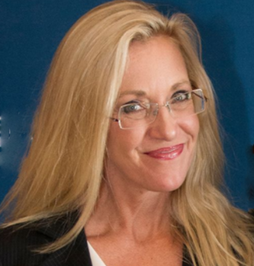 About Natalie Pace Natalie Wynne Pace is an Advocate for Sustainability, Financial Literacy & Women's Empowerment. She has been ranked as a No. 1 stock picker, above over 835 A-list pundits, by an independent tracking agency (TipsTraders). The ABCs of Money remained at or near the #1 Investing Basics e-book on Amazon for over 3 years (in its vertical), with over 120,000 downloads and a mean 5-star ranking. The 4th edition of The ABCs of Money was released on October 17, 2020. Natalie Pace's easy as a pie chart nest egg strategies earned gains in the last two recessions and have outperformed the bull markets in between. That is why her Investor Educational Retreats, books and private coaching are enthusiastically recommended by Nobel Prize winning economist Gary S. Becker, TD AMERITRADE chairman Joe Moglia, Kay Koplovitz and many Main Street investors who have transformed their lives using her Thrive Budget and investing strategies. Click to view a video testimonial from Nilo Bolden. My conversations with Wall Street are very different than those with Main Street. On Main Street, I hear a lot of people parroting sales pitches. Some might say, “I sold my bonds low in March! If I waited until today, I would have made hundreds of thousands of dollars.” (Not true.) Others say that stocks have gone “up and up and up!” (True of some, not true of a lot of others.) Both of these statements are misinformed, as you can see in the charts and information below. And these sentiments are not those held by Wall Street insiders. Bonds are Illiquid and Negative Yielding As you can see in the charts below, bonds are highly illiquid, even today. If you were trying to sell bonds today, you would have as much trouble as you had in March. Nobody wants to gamble 30 or 40 years on a bond that is paying them a measly 3-5% yield – when odds are so high that more debt will have to be issued at a higher rate (making the current bond completely illiquid) or debt will have to be restructured (making the bond a big loser). What’s just as important to note is that they were just as illiquid in December of 2019 – before the pandemic. So, what does Wall Street have to say about bonds? In my interview with the Chief Fixed Income Strategist of Charles Schwab Inc. Kathy Jones, she said: You could see depreciation in [treasuries] between the time you invest and the time they mature. One thing to do is to shorten the maturity or the duration. The longer the term, the more the risk of rates rising and seeing a price decline. With short term, you still have that safety and liquidity, but you’re not taking interest rate risk. Short-term T-bills are very liquid, as you can see in the chart above. You can read my blog Q&A with Kathy Jones at NataliePace.com/blog. You can watch my full interview with her on my YouTube.com/NataliePace channel. Your safe side shouldn’t be at risk of capital loss. In our retreats, we spend one full day on what’s safe. Bonds aren’t. Getting safe is a two-step process. The first step is to keep your money, so that you have the ability to buy low when asset values correct. The second step is to look for safe, income-producing hard assets that you purchase for a good price. You’ll have to consider what will be a steady, reliable income in a post-pandemic world. Things have changed dramatically for the foreseeable future. Of course, both of these steps require financial literacy and education (not what the broker-salesman sells you). Call 310-430-2397 to learn more. Stocks Are Hotter Than Ever: Errr… More Overpriced Than Ever Technology and biotechnology stocks are indeed hot, hot, hot. The old-school companies that are slow or negative growth and are heavily in debt are not hot at all. The markets have come back a little, but many of those companies are still way down. The ones that are up are propped up with bail-outs, and are at risk of financial fall-out. They can’t borrow from Peter to pay Paul forever, and they are getting to the point of no return (debt restructuring in a bankruptcy proceeding) to continue operating. The airline, travel, hospitality, retail, casino, oil, municipality and commercial real estate industries are all vulnerable right now. FANG companies (Facebook, Amazon, Apple, Netflix, Nvidia and Google) have been leading the U.S. economy for years now and have pushed the NASDAQ Composite Index to highs above what we saw in February of 2020 (pre-pandemic). However, the stocks are priced at astronomical levels. That is why Netflix stock is down 12% since reporting earnings on Oct. 20, 2020. Revenue growth was 23% and the net income of $790 million was higher than it had been in years – all great signs. However, investors are forward-looking. So, predictions of just 20% revenue growth in the 4th quarter, with net income that could be 22% lower sequentially, alongside an 82 price-earnings ratio, inspired traders to take profits. As Nobel Prize winning economist Robert Shiller has been warning since 2018, stock prices are alarmingly high. Shiller wrote, “The only time in history going back to 1881 when [stock prices] have been higher are, A: 1929 and B: 2000. We are at a high level, and its concerning. People should be cautious now.” The average price-earnings ratio is 16-17. Growth companies typically take a higher PE. However, Zoom’s PE is 740. Google’s is 35, with negative revenue growth in the most recent quarter. Nvidia’s is 98. Should Amazon be worth $1.6 trillion, when its sales and income are only $280.5 billion and $11.59 billion, respectively? Also, when stocks tanked -35% in March 2020, technology stocks sank, too. It’s difficult for even a great company to remain buoyant when economic storms roil the markets. The Biggest Bailout Index is Illiquid Daily we hear reports about the ups and downs of the Dow Jones Industrial Average, with media and politicians boasting about stock gains, as if that is a broad measure of how the economy is doing. We’re currently in a bull market in the midst of an unprecedented recession. So, how are stocks so high? Basically, the Federal Reserve purchased over 1,000 bonds and 17 bond funds to keep many of the most highly leveraged companies from going under. The Treasury Department, with Congressional permission, handed out payroll support to industries like the airlines. Today, the airlines are begging for more bailout money, so that they don’t have to “right-size” their operations. Demand in the travel industry is off by 85%-90%. Revenue has tanked similarly in many industries, including casinos, car rentals, commercial real estate and more. Auto sales are off by half in Ford and GM. As you can see in the chart below, the Dow Jones Industrial Average is almost as illiquid as bonds are. The DJIA is composed of 30 companies, all of which took a bailout from the Federal Reserve (except the banks, which are receiving other kinds of support). Many Dow components are slow or negative growth with very high debt. A lot of these companies were borrowing at cheap rates, while allowing their credit rating to fall to the lowest rung of investment grade. Over half of the S&P500 is at or near junk bond status, including a lot of the U.S. banks. What were they using that borrowed money for? Most used it to buy back their own stock and pay dividends, which benefit the executives, board and investors. In the worst examples, like Boeing, the company was neglecting to fund their pensions and OPEBs and underinvesting in product design, while making the rich insiders richer. Real Estate Prices are Higher Than Ever… Because of a Moratorium There is currently a moratorium on evictions and foreclosures. As a result of that house of cards and the successful sales of motivated commission-based real estate and mortgage brokers, home sales were up 21% year over year in September of 2020. The median existing-home price soared to an all-time high of $311,800 (source: the National Association of Realtors). Meanwhile, there are clear indicators of major financial distress in the housing market. According to the Mortgage Bankers Association research, in the 3rd quarter of 2020:
Asset Bubbles Again, you’ll hear the current Administration, White House and Presidential political party touting stock market gains and a strong real estate market as signs of what a good job they are doing, while going radio silent on any unflattering financial indicators. Housing unaffordability is a crisis. Debt is astronomical. Bailouts were handed out to companies that were run by financial engineers. Many of those companies had to be rescued before the first Stay-at-Home order was issued in the U.S. Low interest rates create asset bubbles, which make an economy look better temporarily than it really is. (That was the same problem before the Great Recession.) As you can see from the Asset Bubble Chart below, printing up $27 trillion has allowed asset bubbles to form in every category that was a problem before the Great Recession. Most investors lost more than half of their wealth in both of the last two recessions. (Our easy-as-a-pie-chart investing strategy earned gains in the last two recessions and has outperformed the bull markets in between. Call 310-430-2397 or email [email protected] to learn more.) In his now famous Jackson Hole speech on August 27, 2020, Federal Reserve Chairman Jerome Powell admitted that expansions used to end with inflation. However, more recently, bull markets and economic expansions end with “episodes of financial instability.” The economy is not stable enough to support normal interest rates. The Federal Reserve has indicated that it is their intention to keep interest rates at zero until 2023. That will help us to continue to meet our financial obligations on the massive $27 trillion debt. If interest rates rise, then our debt repayment will become an issue, if not a major problem. Last year, the U.S. spent $375 billion (1.8% of GDP) on debt. With an additional 3.5 trillion in debt added this year, even with low interest, the debt load will be a lot higher. The October Surprise The October Surprise will be that the economy was much stronger in the 3rd quarter than it was in the 2nd quarter. The 2nd quarter contraction was 31.4%, with the 2020 contraction predicted to be -5% (or more). The 3Q 2020 advance GDP results will be released this coming Thursday, on Oct. 29, 2020 at 8:30 am ET. Learn more about the Surprise in my blog of the same name. Having a better 3Q doesn’t mean that we’re out of the woods yet. It’s basically a bounce off of the bottom. However, politicians will use the numbers to say what a great job they are doing. It’s important for investors to remain sober about this because of the 5 points highlighted above. Those indicators are red flags that the economy is very, very overleveraged and unhealthy. That will not go away soon. We’ll be paying off the debt for decades. Having overpriced real estate mean that it is unaffordable, which translates to fewer buyers. Sellers will eventually have to lower prices to attract the market back. Stock valuations are too lofty as well. That’s why they fall so far, so fast at the first sign of economic weakness. Stocks lost 35% before anyone (besides the Wall Street insiders) knew what a problem the pandemic would be. Buy & Hope? Buy on a Dip? A recession-proof financial plan is easy-as-a-pie-chart. Buy & Hope and Buy on the Dip can be devastating, as we’ve seen in the last two recessions. (Charts below.) A diversified plan protects you from losses, while allowing you to participate in profits when markets rise. Annual rebalancing is a buy low, sell high plan on auto-pilot. This time-proven plan is less time and money than you are currently spending. So, step off the Wall Street rollercoaster and into a system that is easy and works. Try our free web app, where you can personalize your own pie chart by answering just a few simple questions. (Click to access.) You can read about time-proven recession strategies in the newly released 4th edition of The ABCs of Money. If you have a lot at risk and would like an unbiased 2nd opinion on your plan, email [email protected] or call 310-430-2397 for pricing and information. You can also learn the ABCs of Money that we all should have received in high school at the Jan. 16-18, 2021 Online Investor Educational Retreat. Register by Halloween to receive the lowest price and a free 50-minute private prosperity coaching session (value $300). Learn more in the retreat flyer. (Click to access). Other Blogs of Interest Will Regeneron Be Approved Before the Election? Tesla Will Have an Outstanding Earnings Report Should You Wait Until After the Election to Fix Your Wealth Plan? The October Surprise Is Your Bank a Junk Bond Do Stocks Fare Better Under Democrats or Republicans? Put Your Money Where Your Heart Is. Crystal Ball for the Remainder of 2020 (Including the Election). Microcap Gaming Company Doubles 2Q 2020 Revenue. Apple & Tesla Stock Splits. Schwab's Chief Fixed Income Strategist on What's Safe. China's Tesla (Nio). 2Q Sales Soar. Why Are You Still Renting? (Errr. There is More Than This to Consider!) MedMen's Turnaround Plan Attracts A-List Board Members. Wealth Myths That Keep You Poor. Prosperity Truths That Make You Rich. Protecting Your Wealth and Home in a Recession. Technology and Silver are Golden. The Economy Contracts 32.9% in the 2nd Quarter of 2020. Real Estate: Feeling Equity Rich? Make Sure That Feeling Isn't Fleeting. Airline Revenue Plunges 86%. 10 Questions for College Success Bank Earnings Season. Crimes. Cronyism. Speculation. Real Estate Solutions for a Post-Pandemic World. Copper and Chile Update. Gold Soars. Some Gold Funds Tank. Will the Facebook Ad Boycott De-FANG Stocks? Why Did My Cannabis Stock Go Down? Which Countries Are Hot in a Global Pandemic? Is Your Financial Advisor Good at Navigating Stormy Seas? $10 Avocados, Lies, Damn Lies, Statistics & Wall Street Secrets. It's Never a Crash. Work From Home and Intergenerational Housing. Biotech Races for a Coronavirus Cure. Are You Worried About Money? May is a Good Time for Rebalancing. Is FDIC-Insured Cash at Risk of a Bank Bail-in Plan? Why Did my Bonds Lose Money? Cannabis Update. Recession Proof Your Life. Free Videocon Monday, May 10, 2020. The Recession will be Announced on July 30, 2020. Apple Reports Terrible Earnings. We Are in a Recession. Unemployment, Rising Stocks. What's Going On? 8 Money Myths, Money Pits, Scams and Conspiracy Theories. 21st Century Solutions for Protecting Your Home, Nest Egg & Job. Wall Street Insiders are Selling Like There is No Tomorrow. Why Are My Bonds Losing Money? Tomorrow is Going to be Another Tough Day. Price Matters. Stock Prices are Still Too High. Should You Ride Things Out? 7 Recession Indicators Corona Virus Update. The Bank Bail-in Plan on Your Dime. NASDAQ is Up 6X. CoronaVirus: Which Companies and Countries Will be Most Impacted. Is Tesla Worth GM and Ford Combined. Artificial Intelligence is on Fire. Is it Time to Buy S'More? Take the Retirement Challenge. 2020 Investor IQ Test. Answers to the 2020 Investor IQ Test. The Cannabis Capital Crunch and Stock Meltdown. Does Your Commute Pollute More Than Planes? Are Health Care Costs Killing Your Budget? 2020 Crystal Ball. The Benefits of Living Green. Featuring H.R.H. The Prince of Wales' Twin Eco Communities. What Love, Time and Charity Have to do with our Commonwealth. Interview with MacArthur Genius Award Winner Kevin Murphy. Unicorns Yesterday. Fairy Tales Today. IPO Losses Top $100 Billion. Price Matters. Will There be a Santa Rally? It's Up to Apple. Harness Your Emotions for Successful Investing. What the Ford Downgrade Means for Main Street. The Dow Dropped Over 1000 Points Do We Talk Ourselves into Recessions? Interview with Nobel Prize Winning Economist Robert J. Shiller. Ford is Downgraded to Junk. Gold Mining ETFs Have Doubled. The Gold Bull Market Has Begun. The We Work IPO. The Highs and Hangovers of Investing in Cannabis. Recession Proof Your Life. What's Your Exit Strategy? It's Time To Do Your Annual Rebalancing. Are You Suffering From Buy High, Sell Low Mentality? Financial Engineering is Not Real Growth. The Zoom IPO. Uber vs. Lyft. Which IPO Will Drive Returns? Boeing Cuts 737 Production by 20%. The Lyft IPO Hits Wall Street. Should you tak Cannabis Doubles. Did you miss the party? 12 Investing Mistakes The High Cost of Free Advice. 2018 Was the Worst December Since the Great Depression. Russia Dumps Treasuries and Buys Gold OPEC and Russia Cut Oil Production. Important Disclaimers Please note: Natalie Pace does not act or operate like a broker. She reports on financial news, and is one of the most trusted sources of financial literacy, education and forensic analysis in the world. Natalie Pace educates and informs individual investors to give investors a competitive edge in their personal decision-making. Any publicly traded companies or funds mentioned by Natalie Pace are not intended to be buy or sell recommendations. ALWAYS do your research and consult an experienced, reputable financial professional before buying or selling any security, and consider your long-term goals and strategies. Investors should NOT be all in on any asset class or individual stocks. Your retirement plan should reflect a diversified strategy, which has been designed with the assistance of a financial professional who is familiar with your goals, risk tolerance, tax needs and more. The "trading" portion of your portfolio should be a very small part of your investment strategy, and the amount of money you invest into individual companies should never be greater than your experience, wisdom, knowledge and patience. Information has been obtained from sources believed to be reliable. However, NataliePace.com does not warrant its completeness or accuracy. Opinions constitute our judgment as of the date of this publication and are subject to change without notice. This material is not intended as an offer or solicitation for the purchase or sale of any financial instrument. Securities, financial instruments or strategies mentioned herein may not be suitable for all investors. 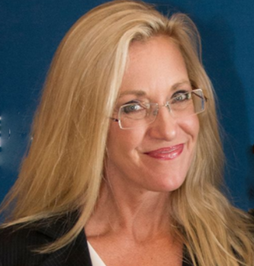 About Natalie Pace Natalie Wynne Pace is an Advocate for Sustainability, Financial Literacy & Women's Empowerment. She has been ranked as a No. 1 stock picker, above over 835 A-list pundits, by an independent tracking agency (TipsTraders). The ABCs of Money remained at or near the #1 Investing Basics e-book on Amazon for over 3 years (in its vertical), with over 120,000 downloads and a mean 5-star ranking. The 4th edition of The ABCs of Money was released on October 17, 2020. Natalie Pace's easy as a pie chart nest egg strategies earned gains in the last two recessions and have outperformed the bull markets in between. That is why her Investor Educational Retreats, books and private coaching are enthusiastically recommended by Nobel Prize winning economist Gary S. Becker, TD AMERITRADE chairman Joe Moglia, Kay Koplovitz and many Main Street investors who have transformed their lives using her Thrive Budget and investing strategies. Click to view a video testimonial from Nilo Bolden. The President accredits Regeneron’s antibody cocktail with curing him of COVID19 and helping him to feel better than he has ever felt. Could an FDA fast-track approval happen before the election? Will the treatment be free? The Cliff Notes are that the fast-track is pretty unlikely, and the first 70,000-300,000 doses will be free. Regeneron filed for a fast-track approval under the Emergency Use Authorization from the FDA on Oct. 8, 2020. The FDA is under extreme pressure from the White House to approve a treatment before November 3, 2020. Whether or not this will happen is anyone’s guess. The trial results reported by Regeneron and the President were positive, but are not yet validated in a peer-review trial. Typically, the FDA wants to see at least six-months of follow-up to ensure that there are no serious adverse events after the treatment. If that standard is applied, then the approval will not happen before the election. Regeneron began its first phase of trials on June 11, 2020. The 2/3 phases were launched on July 6, 2020. How much money will the company get for potentially saving the President’s life? How can the drug be free, if the company wants to stay in business? According to Regeneron’s press release of Oct. 7, 2020, the government has committed to making the treatment available to Americans at no cost, if the REGN-COV2 investigational antibody combination for COVID-19 is granted an Emergency Use Authorization from the FDA. Regeneron received $450 million from the U.S. Department of Health and Human Services to manufacture 70,000 to 300,000 treatments of REGN-COV2, which will be owned by the government. So, this number of initial treatments will be free. Many more doses will be needed, however. There have been 8.2 million COVID19 cases in the U.S., with 219,541 deaths (as of 10.19.2020). There are almost 50,000 new cases announced daily in the U.S. Sadly, even at the upper range of the deal – 300,000 – Regeneron’s therapies wouldn’t last a week. There are currently 50,000 doses of the drug available, with a goal of having 300,000 doses within a few months. Will a Treatment Send Regeneron’s Stock Soaring? Stocks are purchased by people, and people can be irrational. So, regardless of whether it is a good investment, an approval could positively impact Regeneron’s stock, even though the stock is already near an all-time high, with a price-earnings ratio of 23. A year ago, the stock was trading at half of today’s value. The government deal will not dramatically increase Regeneron’s earnings – at least not in the near term. If the 3Q 2020 revenue is similar to 2Q 2020, then the year-over-year revenue will decline about 5%. That is including the government’s check. If future treatments go through the normal pricing system, then this should help to boost Regeneron’s earnings and support a higher share price. However, if the government wants to keep the treatments free, then the price is fixed for Regeneron at lower than the normal marketplace. As an example, when Gilead was approved for Sovaldi (a cure for Hepatits C) on December 6, 2013, the company’s share price went from $70/share to $114/share. In the months leading up to the approval, the share price doubled, just on the potential of the approval. However, Gilead was roundly censured for making the cost of the cure $84,000 or more. With the political heat of a pandemic, it is doubtful that Regeneron, or any other company, will attempt those kinds of profits. Regeneron reports 3Q 2020 earnings on Nov. 5, 2020, two days after the election, before the markets open. Smaller Companies Involved in the Race for a COVID Treatment and Vaccine There are two other smaller companies with COVID partnerships with the NIH that are promising. Adaptive Biotechnology has a partnership with Amgen and Microsoft, among others. On August 4, 2020, the company announced the first T-cell monitoring tool that will be useful in developing a vaccine. Amgen is part of the NIH’s public-private partnership to advance a COVID treatment and cure. Vir Biotechnology has a partnership with GlaxoSmithKline and is currently in a Phase 3 trial for a treatment for COVID called VIR-7831. Results on that study are expected to be available at the end of 2020. The Vir antibody treatment could be a competitor of Regeneron’s. Vir’s president and CEO is George Scangos, Ph.D. He was the former CEO of Biogen, a $44 billion company. Vir is part of the NIH’s public-private partnership to advance a COVID treatment and cure. Finally, Inari Medical launched an IPO this year, and has gone on to see sales soar by 152%. The company is not a COVID contender. Rather they have an FDA-approved clot retriever product that helps patients suffering from venous diseases, without the use of thrombolytic drugs. The market is projected to be $3.6 billion annually. Inari’s trailing 12-month revenue is $86 million. So, the growth potential is noteworthy. All three of these companies are still cash-negative. Inari and Adaptive are trading near their 52-week highs, while Vir Biotechnology is at $37.25, down from a high of $75.00 in August. All of these companies were trading at much lower prices in March 2020, during the stock market rout. Vir's price weakness has a lot to do with insider selling, which can be a red flag -- particularly when the company is promoting an effective treatment during a pandemic. The chief seller is Herbert Virgin, the Chief Scientist. Large Companies Involved in the Race for a COVID Treatment and Vaccine GlaxoSmithKline, Pfizer, Johnson and Johnson, Eli Lilly and more are also involved in the race for a COVID19 treatment and cure. As you might have heard, there was a patient with a serious adverse event (a disease that is not being disclosed due to patient confidentiality) that has paused the Johnson & Johnson Phase 3 clinical trials for a vaccine. Eli Lilly has also had a study paused. The large biotechs will become distribution partners, if one of the smaller companies beats them to a treatment or vaccine. Like many massive companies, the large biotechs have slow or negative revenue growth. However, unlike a lot of other industries that have had to suspend or cut dividends this year, the companies mentioned directly above are still offering a dividend. If you’re interested in viewing our Biotech Stock Report Card, please request for it on one of our social media platforms, or by emailing [email protected]. You can reach us at Twitter.com/NataliePace, Instagram.com/NatalieWynnePace and Facebook.com/TheABCsofMoney. Full Disclosure: I own shares of some of the biotechnology companies mentioned in this blog. If you'd like to learn how to evaluate stocks from a No. 1 ranked stock picker, register for the Jan. 16-18, 2021 New Year, New You Retreat. Sign up by Oct. 31, 2020 (Halloween) to receive the lowest price and a complimentary 50-minute private, prosperity coaching session. Call 310-430-2397 or email [email protected] now to learn more or to register. You can also access additional information by clicking on the banner ad below, which will take you to the retreat flyer. Other Blogs of Interest Tesla Will Have an Outstanding Earnings Report Should You Wait Until After the Election to Fix Your Wealth Plan? The October Surprise Is Your Bank a Junk Bond Do Stocks Fare Better Under Democrats or Republicans? Put Your Money Where Your Heart Is. Crystal Ball for the Remainder of 2020 (Including the Election). Microcap Gaming Company Doubles 2Q 2020 Revenue. Apple & Tesla Stock Splits. Schwab's Chief Fixed Income Strategist on What's Safe. China's Tesla (Nio). 2Q Sales Soar. Why Are You Still Renting? (Errr. There is More Than This to Consider!) MedMen's Turnaround Plan Attracts A-List Board Members. Wealth Myths That Keep You Poor. Prosperity Truths That Make You Rich. Protecting Your Wealth and Home in a Recession. Technology and Silver are Golden. The Economy Contracts 32.9% in the 2nd Quarter of 2020. Real Estate: Feeling Equity Rich? Make Sure That Feeling Isn't Fleeting. Airline Revenue Plunges 86%. 10 Questions for College Success Bank Earnings Season. Crimes. Cronyism. Speculation. Real Estate Solutions for a Post-Pandemic World. Copper and Chile Update. Gold Soars. Some Gold Funds Tank. Will the Facebook Ad Boycott De-FANG Stocks? Why Did My Cannabis Stock Go Down? Which Countries Are Hot in a Global Pandemic? Is Your Financial Advisor Good at Navigating Stormy Seas? $10 Avocados, Lies, Damn Lies, Statistics & Wall Street Secrets. It's Never a Crash. Work From Home and Intergenerational Housing. Biotech Races for a Coronavirus Cure. Are You Worried About Money? May is a Good Time for Rebalancing. Is FDIC-Insured Cash at Risk of a Bank Bail-in Plan? Why Did my Bonds Lose Money? Cannabis Update. Recession Proof Your Life. Free Videocon Monday, May 10, 2020. The Recession will be Announced on July 30, 2020. Apple Reports Terrible Earnings. We Are in a Recession. Unemployment, Rising Stocks. What's Going On? 8 Money Myths, Money Pits, Scams and Conspiracy Theories. 21st Century Solutions for Protecting Your Home, Nest Egg & Job. Wall Street Insiders are Selling Like There is No Tomorrow. Why Are My Bonds Losing Money? Tomorrow is Going to be Another Tough Day. Price Matters. Stock Prices are Still Too High. Should You Ride Things Out? 7 Recession Indicators Corona Virus Update. The Bank Bail-in Plan on Your Dime. NASDAQ is Up 6X. CoronaVirus: Which Companies and Countries Will be Most Impacted. Is Tesla Worth GM and Ford Combined. Artificial Intelligence is on Fire. Is it Time to Buy S'More? Take the Retirement Challenge. 2020 Investor IQ Test. Answers to the 2020 Investor IQ Test. The Cannabis Capital Crunch and Stock Meltdown. Does Your Commute Pollute More Than Planes? Are Health Care Costs Killing Your Budget? 2020 Crystal Ball. The Benefits of Living Green. Featuring H.R.H. The Prince of Wales' Twin Eco Communities. What Love, Time and Charity Have to do with our Commonwealth. Interview with MacArthur Genius Award Winner Kevin Murphy. Unicorns Yesterday. Fairy Tales Today. IPO Losses Top $100 Billion. Price Matters. Will There be a Santa Rally? It's Up to Apple. Harness Your Emotions for Successful Investing. What the Ford Downgrade Means for Main Street. The Dow Dropped Over 1000 Points Do We Talk Ourselves into Recessions? Interview with Nobel Prize Winning Economist Robert J. Shiller. Ford is Downgraded to Junk. Gold Mining ETFs Have Doubled. The Gold Bull Market Has Begun. The We Work IPO. The Highs and Hangovers of Investing in Cannabis. Recession Proof Your Life. What's Your Exit Strategy? It's Time To Do Your Annual Rebalancing. Are You Suffering From Buy High, Sell Low Mentality? Financial Engineering is Not Real Growth. The Zoom IPO. Uber vs. Lyft. Which IPO Will Drive Returns? Boeing Cuts 737 Production by 20%. The Lyft IPO Hits Wall Street. Should you tak Cannabis Doubles. Did you miss the party? 12 Investing Mistakes The High Cost of Free Advice. 2018 Was the Worst December Since the Great Depression. Russia Dumps Treasuries and Buys Gold OPEC and Russia Cut Oil Production. Important Disclaimers Please note: Natalie Pace does not act or operate like a broker. She reports on financial news, and is one of the most trusted sources of financial literacy, education and forensic analysis in the world. Natalie Pace educates and informs individual investors to give investors a competitive edge in their personal decision-making. Any publicly traded companies or funds mentioned by Natalie Pace are not intended to be buy or sell recommendations. ALWAYS do your research and consult an experienced, reputable financial professional before buying or selling any security, and consider your long-term goals and strategies. Investors should NOT be all in on any asset class or individual stocks. Your retirement plan should reflect a diversified strategy, which has been designed with the assistance of a financial professional who is familiar with your goals, risk tolerance, tax needs and more. The "trading" portion of your portfolio should be a very small part of your investment strategy, and the amount of money you invest into individual companies should never be greater than your experience, wisdom, knowledge and patience. Information has been obtained from sources believed to be reliable. However, NataliePace.com does not warrant its completeness or accuracy. Opinions constitute our judgment as of the date of this publication and are subject to change without notice. This material is not intended as an offer or solicitation for the purchase or sale of any financial instrument. Securities, financial instruments or strategies mentioned herein may not be suitable for all investors. 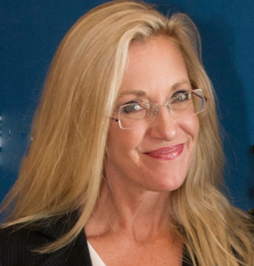 About Natalie Pace Natalie Wynne Pace is an Advocate for Sustainability, Financial Literacy & Women's Empowerment. She has been ranked as a No. 1 stock picker, above over 835 A-list pundits, by an independent tracking agency (TipsTraders). The ABCs of Money remained at or near the #1 Investing Basics e-book on Amazon for over 3 years (in its vertical), with over 120,000 downloads and a mean 5-star ranking. The 4th edition of The ABCs of Money was released on October 17, 2020. Natalie Pace's easy as a pie chart nest egg strategies earned gains in the last two recessions and have outperformed the bull markets in between. That is why her Investor Educational Retreats, books and private coaching are enthusiastically recommended by Nobel Prize winning economist Gary S. Becker, TD AMERITRADE chairman Joe Moglia, Kay Koplovitz and many Main Street investors who have transformed their lives using her Thrive Budget and investing strategies. Click to view a video testimonial from Nilo Bolden. Tesla reports earnings on Oct. 21, 2020 after the markets close. On Oct. 2, 2020, in their Deliveries Report, they knocked the numbers to space. Tesla had record vehicle production of 145,036 vehicles and record deliveries of 139,300. That portends what should be the best earnings report in the history of the company. It does not indicate, however, that the auto industry is going to flourish in the current recession. And by every measure, the great news for Tesla is already more than astronomically priced in. Electric Vehicles are Hot On September 23, 2020, California Governor Gavin Newsom issued an Executive Order mandating that all new cars and passenger trucks in his state be zero-emissions by 2035. EVs didn’t need an executive order to be the hottest selling vertical in the auto industry. While Tesla’s deliveries are up 43.5% year over year, Ford’s are down 4.9% (to 551,796). GM vehicle sales are down 10% over the same period (to 665,192). Both GM and Ford are currently leaning into truck and SUVs, after Tesla took over the sedan market with its Tesla 3. GM CEO Mary Barra is promising a future of “zero crashes, zero emissions and zero congestion.” She’s leaning into EVs, self-driving and connectivity in her Vehicle to Everything Plan. GM is advising and investing in China. Of course, Tesla is already in China with a Gigafactory and car sales and is expanding into Europe with the Berlin Factory projected to be completed in July 2021. However, the competition for Tesla is starting to heat up. China’s own EV provider, Nio, saw deliveries soar 154% in the 3rd quarter of 2020, to 12,206. That’s only 9% of Tesla’s deliveries. However, if the company’s momentum continues apace, Nio will be better able to support its rather lofty market value of $29.45 billion. Tesla's Share Price Tesla has had a massive jump in value in 2020, for a combined value of $416.2 billion – more than Toyota, GM and Ford combined. Elon Musk remarked on May 1, 2020 that Tesla stock was too high. Since then it has gone even higher. Tesla’s price/earnings ratio is 1187. That’s astronomically high, even for a company that just increased sales by 43.5%. (Remember sales were down -5% in the 2nd quarter of 2020.) Even great companies can get drug down if the markets head south. In March of 2020, you could have purchased Tesla for $72, rather than today’s price of $449.67. If there is any stumble at all in Tesla’s execution, then shareholders could rush for the exits – taking profits as fast as they can. This has happened many times with the company, with much of the volatility linked directly to Tesla‘s CEO Elon Musk. Auto Sales in Recessions The jump in EV sales in the 3rd quarter of 2020 might make you think we are out of the woods in the current recession. However, that would be a dangerous assumption, if it turns out not to be true. Auto sales struggle in recessions. When there is high unemployment, people can’t afford to buy a new car. In a speech on October 2, 2020, Federal Reserve Board chairman Jerome Powell said that a “broader measure” of the employment situation indicates that unemployment might be as high as 11%. Some folks don’t realize we’re in a recession, or are perhaps denying that the economy has suffered as much as it has, and are hoping that the election might fix things. Auto loan debt has been quite elevated for years, and is currently at $1.34 trillion. As I’ve indicated in many blogs, financial instability is a concern (this was a major concern of a new IMF blog as well). Debt was massive before the pandemic. See the chart below for details. GM and Chrysler both had bankruptcies in 2009, after years of net losses. GM and Ford both saw sales/revenue slump by more than half in the 2nd quarter of this year. Toyota’s sales were down by 40%. Even Tesla’s sales sank 5% in the 2nd quarter of 2020. The 3rd quarter was much better for most auto manufacturers. That has more to do with borrowed time and money than to a robust economy and strong consumer. With a market value of just $30 billion, a speculative bond rating and total liabilities of $225 billion, Ford might need to restructure its debt through a Chapter 11 bankruptcy. On Oct. 1, 2020, Ford announced major leadership changes, including a new CEO and CFO, effective immediately. That’s never a good sign, particularly in a recession, with all of the debt, pensions and other post-employment benefits (OPEBs) that Ford is grappling with. The former CEO of Ford, Jim Hackett, has been selling his Ford stock (another red flag). FYI: Ford was downgraded to junk in September of 2019 by Moody’s – before the pandemic. Bottom Line Buying auto stock in a recession can be perilous to your fiscal health – particularly if you are buying high. Tesla’s 2nd quarter will be stellar and will definitely make headlines. However, the good news may already be priced into Tesla’s stock. In fact, if the company stumbles going forward, there could be a sell-off. The product has an outstanding record. It’s typically the CEO that gets into hot water. For the rest of the industry, legacy auto manufacturers will continue to lag the marketplace until they get a stronger foothold in the EV market. The exception to that is definitely Nio, which is seeing sales soar in China. You can learn how to pick great companies, like Tesla and Nio, by attending our Investor Educational Retreats. Call 310-430-2397 or visit NataliePace.com to learn more. You can read about our time-proven, easy-as-a-pie-chart nest egg strategies, in my book The ABCs of Money. (The 4th edition will be published very soon.) You can learn and implement these transformational, time-proven tools at our Investor Educational Retreats. (Go to NataliePace.com to discover when the next retreat will be.) You can call or email our office for pricing and information on receiving an unbiased 2nd opinion of your current plan, which comes with a personalized roadmap for safety and diversification. Call 310-430-2397 or email [email protected]. Register for the Jan. 16-18, 2021 New Year, New You Retreat by Oct. 31, 2020 (Halloween) to receive the lowest price and a complimentary 50-minute private, prosperity coaching session. Call 310-430-2397 or email [email protected] now to learn more or to register. You can also access additional information by clicking on the banner ad below, which will take you to the retreat flyer. Other Blogs of Interest Should You Wait Until After the Election to Fix Your Wealth Plan? The October Surprise Is Your Bank a Junk Bond Do Stocks Fare Better Under Democrats or Republicans? Put Your Money Where Your Heart Is. Crystal Ball for the Remainder of 2020 (Including the Election). Microcap Gaming Company Doubles 2Q 2020 Revenue. Apple & Tesla Stock Splits. Schwab's Chief Fixed Income Strategist on What's Safe. China's Tesla (Nio). 2Q Sales Soar. Why Are You Still Renting? (Errr. There is More Than This to Consider!) MedMen's Turnaround Plan Attracts A-List Board Members. Wealth Myths That Keep You Poor. Prosperity Truths That Make You Rich. Protecting Your Wealth and Home in a Recession. Technology and Silver are Golden. The Economy Contracts 32.9% in the 2nd Quarter of 2020. Real Estate: Feeling Equity Rich? Make Sure That Feeling Isn't Fleeting. Airline Revenue Plunges 86%. 10 Questions for College Success Bank Earnings Season. Crimes. Cronyism. Speculation. Real Estate Solutions for a Post-Pandemic World. Copper and Chile Update. Gold Soars. Some Gold Funds Tank. Will the Facebook Ad Boycott De-FANG Stocks? Why Did My Cannabis Stock Go Down? Which Countries Are Hot in a Global Pandemic? Is Your Financial Advisor Good at Navigating Stormy Seas? $10 Avocados, Lies, Damn Lies, Statistics & Wall Street Secrets. It's Never a Crash. Work From Home and Intergenerational Housing. Biotech Races for a Coronavirus Cure. Are You Worried About Money? May is a Good Time for Rebalancing. Is FDIC-Insured Cash at Risk of a Bank Bail-in Plan? Why Did my Bonds Lose Money? Cannabis Update. Recession Proof Your Life. Free Videocon Monday, May 10, 2020. The Recession will be Announced on July 30, 2020. Apple Reports Terrible Earnings. We Are in a Recession. Unemployment, Rising Stocks. What's Going On? 8 Money Myths, Money Pits, Scams and Conspiracy Theories. 21st Century Solutions for Protecting Your Home, Nest Egg & Job. Wall Street Insiders are Selling Like There is No Tomorrow. Why Are My Bonds Losing Money? Tomorrow is Going to be Another Tough Day. Price Matters. Stock Prices are Still Too High. Should You Ride Things Out? 7 Recession Indicators Corona Virus Update. The Bank Bail-in Plan on Your Dime. NASDAQ is Up 6X. CoronaVirus: Which Companies and Countries Will be Most Impacted. Is Tesla Worth GM and Ford Combined. Artificial Intelligence is on Fire. Is it Time to Buy S'More? Take the Retirement Challenge. 2020 Investor IQ Test. Answers to the 2020 Investor IQ Test. The Cannabis Capital Crunch and Stock Meltdown. Does Your Commute Pollute More Than Planes? Are Health Care Costs Killing Your Budget? 2020 Crystal Ball. The Benefits of Living Green. Featuring H.R.H. The Prince of Wales' Twin Eco Communities. What Love, Time and Charity Have to do with our Commonwealth. Interview with MacArthur Genius Award Winner Kevin Murphy. Unicorns Yesterday. Fairy Tales Today. IPO Losses Top $100 Billion. Price Matters. Will There be a Santa Rally? It's Up to Apple. Harness Your Emotions for Successful Investing. What the Ford Downgrade Means for Main Street. The Dow Dropped Over 1000 Points Do We Talk Ourselves into Recessions? Interview with Nobel Prize Winning Economist Robert J. Shiller. Ford is Downgraded to Junk. Gold Mining ETFs Have Doubled. The Gold Bull Market Has Begun. The We Work IPO. The Highs and Hangovers of Investing in Cannabis. Recession Proof Your Life. What's Your Exit Strategy? It's Time To Do Your Annual Rebalancing. Are You Suffering From Buy High, Sell Low Mentality? Financial Engineering is Not Real Growth. The Zoom IPO. Uber vs. Lyft. Which IPO Will Drive Returns? Boeing Cuts 737 Production by 20%. The Lyft IPO Hits Wall Street. Should you tak Cannabis Doubles. Did you miss the party? 12 Investing Mistakes The High Cost of Free Advice. 2018 Was the Worst December Since the Great Depression. Russia Dumps Treasuries and Buys Gold OPEC and Russia Cut Oil Production. Important Disclaimers Please note: Natalie Pace does not act or operate like a broker. She reports on financial news, and is one of the most trusted sources of financial literacy, education and forensic analysis in the world. Natalie Pace educates and informs individual investors to give investors a competitive edge in their personal decision-making. Any publicly traded companies or funds mentioned by Natalie Pace are not intended to be buy or sell recommendations. ALWAYS do your research and consult an experienced, reputable financial professional before buying or selling any security, and consider your long-term goals and strategies. Investors should NOT be all in on any asset class or individual stocks. Your retirement plan should reflect a diversified strategy, which has been designed with the assistance of a financial professional who is familiar with your goals, risk tolerance, tax needs and more. The "trading" portion of your portfolio should be a very small part of your investment strategy, and the amount of money you invest into individual companies should never be greater than your experience, wisdom, knowledge and patience. Information has been obtained from sources believed to be reliable. However, NataliePace.com does not warrant its completeness or accuracy. Opinions constitute our judgment as of the date of this publication and are subject to change without notice. This material is not intended as an offer or solicitation for the purchase or sale of any financial instrument. Securities, financial instruments or strategies mentioned herein may not be suitable for all investors. 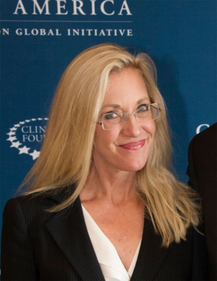 About Natalie Pace Natalie Wynne Pace is an Advocate for Sustainability, Financial Literacy & Women's Empowerment. She has been ranked as a No. 1 stock picker, above over 835 A-list pundits, by an independent tracking agency (TipsTraders). The ABCs of Money remained at or near the #1 Investing Basics e-book on Amazon for over 3 years (in its vertical), with over 120,000 downloads and a mean 5-star ranking. The 3rd edition of The ABCs of Money was released in 2020. The 4th edition, updated to include the COVID-19 Recession, will be released soon. Natalie Pace's easy as a pie chart nest egg strategies earned gains in the last two recessions and have outperformed the bull markets in between. That is why her Investor Educational Retreats, books and private coaching are enthusiastically recommended by Nobel Prize winning economist Gary S. Becker, TD AMERITRADE chairman Joe Moglia, Kay Koplovitz and many Main Street investors who have transformed their lives using her Thrive Budget and investing strategies. Click to view a video testimonial from Nilo Bolden. Dear Natalie, I asked my broker if I should be re-examining things, and he said, “No, we’re in a bull market.” When I asked again, he said, “Wait until after the election. The stock market will do great if Trump is re-elected.” However, I’m not convinced that waiting is the right thing to do, particularly since I remember my freak-out in March, when my nest egg was down by 35%. Can you offer some clarity? Signed, Confused. I Don’t Know Who or What to Believe. Dear Worried (and Rightfully So), First off, when you don’t know who or what to believe, trust results. By that I mean, always grade your guru before you listen to anything he says. For instance, you mentioned that your portfolio was down 35% between February 19, 2020 and March 23, 2020. If that was the case, then you are riding a Wall Street rollercoaster. When it goes up, your wealth increases. However, when it heads south, you’re vulnerable. That Buy & Hope plan has been losing more than half in each of the last two recessions. Additionally, most plans that go in whatever direction that the market does, perform about 2% under the general marketplace returns, due to fees. It’s better to be early than late. As you noticed in March, if you wait for the headlines, it’s too late to protect your wealth. So, waiting until after the election to fix a broken plan isn’t a good idea. If you look at your 2018 statements, you might notice that you also lost money in 2018. If you had the same plan in the Great Recession, then chances are quite high that you lost 55% or more, and then spent the next 7.5 years hoping and praying to recover, instead of earning gains. At the bottom of the market, the sales pitch shifts to, “If you sell now, you’ll be selling low.” There is a time-proven plan that earned gains in the Great Recession and outperformed the bull market in between. That plan is outlined in The ABCs of Money and taught at our Investor Educational Retreats. It’s also enthusiastically endorsed by Nobel Prize winning economist Gary Becker and the chairman of TD AMERITRADE, Joe Moglia (along with the many happy Main Street investors who use this system). Listen to Nilo Bolden describe her experience by clicking on her name. In other words, this plan has a Ph.D. in results. A well-designed plan doesn’t lose more than half in recessions. It protects you from market downturns, while allowing you to build wealth during bull markets. This plan is easy-as-a-pie-chart. Buy & Hold broker-salesmen don’t implement this plan because their own monetization and wealth strategy doesn’t profit from it. There are brokerages that are leaning into Modern Portfolio Theory with annual rebalancing – the cornerstone of the ABCs of Money. (Buy & Hold brokers say they use MPT. However, when you look at your portfolio, even if there are 20 pages of holdings, chances are very high that you are not properly diversified.) You are the boss of your money. Take ownership. You wouldn’t learn cooking from a chef who burns meals. My guess is that you are also worried because what your broker-salesman is saying doesn’t make sense. In fact, stocks fare better under Democrats (this is well-known on Wall Street). While your broker says we’re in a bull market, you’re seeing a lot of disturbing signs of the current recession. There are plenty of them. Unemployment is about 11%, according to Jerome Powell, speaking to the National Association for Business Economics on October 6, 2020 (click to read). (Read my blog to learn how the BLS has been underreporting unemployment.) There are currently 26.5 million people taking some kind of unemployment. Office buildings, apartment buildings and malls are ghost towns. 52% of 18-29 year-olds are living with a parent. This is higher than the Great Depression. The 1st and 2nd quarter 2020 GDP reports were contractions of -5% and -31.4%, respectively. Airlines and states are laying off workers in record numbers. Disney laid off 28,000 employees on September 30, 2020. September 30, 2020 is the date the government stopped subsidizing companies for employees who aren’t working. Revenue in industries like travel, airlines, casinos and more is down by more than 80%. At the same time, over half of the S&P500 is at or near junk bond status – including a lot of U.S. banks and brokerages. As a reminder, a lot of our banks, brokerages and insurance companies wouldn’t even be in business if we hadn’t bailed them out in 2008. Have you really gotten a true picture of the economy from your broker? The Federal Reserve has purchased 1000 bonds and a lot of bond ETFs to try and keep things afloat – so that there is a more orderly procession through the bankruptcy courts for those companies that need to restructure their debt. (The Feds are not supposed to purchase stocks. A Wall Street insider told me that he thinks they might be, however.) Jerome Powell told Congress that, “Our actions, taken together, have helped unlock more than $1 trillion of funding, which, in turn, has helped keep organizations from shuttering, putting them in a better position to keep workers on and to hire them back as the economy continues to recover.” Here are a few Stock Report Cards on some of the more hard-hit industries. Click on the report card to access a blog, where you can get additional information on airlines, casinos and auto manufacturers (including EVs and China's Tesla). When companies restructure, your bonds lose money. In general, bonds are illiquid and negative-yielding. Listen to my interview with Kathy A. Jones, the Chief Fixed Income Strategist at Charles Schwab Inc. on my YouTube channel for additional information on the risk in bonds, and what you can do about it. Fixed income is a word used in financial services for the “safe” side of your portfolio. Fixed income means your principal should stay intact, while you earn a predictable income. However, as you will learn in my interview with Kathy Jones, bonds are not living up to the name fixed income. You’re not getting the promised yield, and you could lose principal on your investment. This is a problem because the safe side is supposed to help keep your portfolio buoyant in troubled times. Bonds did that in the Great Recession and the Dot Com Recession, but are as risky as stocks in the current recession. These are all facts. If you knew where to access the official statistics and data, it would be easy to confirm. (I’ve provided links to many of the government agencies that provide the data. Just click on the blue-highlighted words to access them.) You can access other experts explaining what’s really going on in the economy by scrolling through the videos on my YouTube.com/NataliePace channel. There you will find my interview with Howard Silverblatt, the Senior Index Analyst at the S&P Dow Jones Indices (home to the S&P500®), who candidly told our viewers that stock prices are so high he needs to get a Kleenex because his nose is bleeding. Federal Reserve Board chairman Jerome Powell has been very candid about the challenges of the current recession. When he testified before Congress on September 22, 2020, he said, “The path ahead continues to be highly uncertain… A full recovery is likely to come only when people are confident that it is safe to reengage in a broad range of activities.” The Bottom Line We are in an unprecedented recession. The economy is being propped up with a flood of cash, the buying of almost 1000 bonds, a moratorium on evictions and foreclosures, paying people who don’t go to work, and broker salesmen who tell their clients not to do anything. That is always the case in recessions, which is why it typically takes about 18-24 months for stock prices to hit rock bottom. Everyone waits, until something terrible happens. There are a series of unfortunate events that cause a sell-off each time. Then things stabilize (or in the case of 2020 recover). Then another terrible thing happens, followed by another a few months later, again and again, until the bottom is finally reached. If you wait until the headlines and brokers turn apocalyptic, which they always do at the bottom of the market after a carnage of client losses, it will (obviously) be too late to protect your wealth. In fact, at that point, it would be a better idea to buy low. However, if you have lost half of your wealth and all of your liquidity, then you won’t be in a position to buy low. When things are over leveraged, it is really only a matter of time before some industries and companies have to restructure and change their business plan. We’ve seen that with retail for two years now. The airlines, the travel industry, casinos, commercial real estate, auto manufacturing, hospitality and many more industries are in trouble. As you can see in the Stock Report Cards above, many have lost more than half of their revenue. Most of these industries, including our banks, were highly leveraged before the pandemic. As I’ve said many times, more than half of the S&P500® are at or near junk bond status, including a lot of financial services companies. In adverse times, speculative companies have a lot of trouble. You don’t want that trouble to come on your dime. The right answer is not to sell everything and go live in a yurt. It is to be properly diversified and protected, and to know what is safe in a world where bonds are illiquid and negative yielding, money market funds have redemption gates and liquidity fees, stocks and real estate are overpriced and insurance companies and banks are in the large group hanging out just above junk bond status (and would not be in business if we hadn’t bailed them out in 2008). Losing more than half every eight to ten years and then spending the bull market crawling back to even is a Wall Street roller coaster and a terrible plan. A better strategy is to protect your wealth and liquidity, so that when asset prices tank, you have the capital to buy low. A properly diversified plan allows you to benefit from bull markets – even mini bull markets that are manufactured during a recession (and could be short-lived). Editor’s Note: All of the blue-highlighted words above link to blogs where you can learn more. There is also a list of recent blogs below. Other Blogs of Interest The October Surprise Is Your Bank a Junk Bond Do Stocks Fare Better Under Democrats or Republicans? Put Your Money Where Your Heart Is. Crystal Ball for the Remainder of 2020 (Including the Election). Microcap Gaming Company Doubles 2Q 2020 Revenue. Apple & Tesla Stock Splits. Schwab's Chief Fixed Income Strategist on What's Safe. China's Tesla (Nio). 2Q Sales Soar. Why Are You Still Renting? (Errr. There is More Than This to Consider!) MedMen's Turnaround Plan Attracts A-List Board Members. Wealth Myths That Keep You Poor. Prosperity Truths That Make You Rich. Protecting Your Wealth and Home in a Recession. Technology and Silver are Golden. The Economy Contracts 32.9% in the 2nd Quarter of 2020. Real Estate: Feeling Equity Rich? Make Sure That Feeling Isn't Fleeting. Airline Revenue Plunges 86%. 10 Questions for College Success Bank Earnings Season. Crimes. Cronyism. Speculation. Real Estate Solutions for a Post-Pandemic World. Copper and Chile Update. Gold Soars. Some Gold Funds Tank. Will the Facebook Ad Boycott De-FANG Stocks? Why Did My Cannabis Stock Go Down? Which Countries Are Hot in a Global Pandemic? Is Your Financial Advisor Good at Navigating Stormy Seas? $10 Avocados, Lies, Damn Lies, Statistics & Wall Street Secrets. It's Never a Crash. Work From Home and Intergenerational Housing. Biotech Races for a Coronavirus Cure. Are You Worried About Money? May is a Good Time for Rebalancing. Is FDIC-Insured Cash at Risk of a Bank Bail-in Plan? Why Did my Bonds Lose Money? Cannabis Update. Recession Proof Your Life. Free Videocon Monday, May 10, 2020. The Recession will be Announced on July 30, 2020. Apple Reports Terrible Earnings. We Are in a Recession. Unemployment, Rising Stocks. What's Going On? 8 Money Myths, Money Pits, Scams and Conspiracy Theories. 21st Century Solutions for Protecting Your Home, Nest Egg & Job. Wall Street Insiders are Selling Like There is No Tomorrow. Why Are My Bonds Losing Money? Tomorrow is Going to be Another Tough Day. Price Matters. Stock Prices are Still Too High. Should You Ride Things Out? 7 Recession Indicators Corona Virus Update. The Bank Bail-in Plan on Your Dime. NASDAQ is Up 6X. CoronaVirus: Which Companies and Countries Will be Most Impacted. Is Tesla Worth GM and Ford Combined. Artificial Intelligence is on Fire. Is it Time to Buy S'More? Take the Retirement Challenge. 2020 Investor IQ Test. Answers to the 2020 Investor IQ Test. The Cannabis Capital Crunch and Stock Meltdown. Does Your Commute Pollute More Than Planes? Are Health Care Costs Killing Your Budget? 2020 Crystal Ball. The Benefits of Living Green. Featuring H.R.H. The Prince of Wales' Twin Eco Communities. What Love, Time and Charity Have to do with our Commonwealth. Interview with MacArthur Genius Award Winner Kevin Murphy. Unicorns Yesterday. Fairy Tales Today. IPO Losses Top $100 Billion. Price Matters. Will There be a Santa Rally? It's Up to Apple. Harness Your Emotions for Successful Investing. What the Ford Downgrade Means for Main Street. The Dow Dropped Over 1000 Points Do We Talk Ourselves into Recessions? Interview with Nobel Prize Winning Economist Robert J. Shiller. Ford is Downgraded to Junk. Gold Mining ETFs Have Doubled. The Gold Bull Market Has Begun. The We Work IPO. The Highs and Hangovers of Investing in Cannabis. Recession Proof Your Life. What's Your Exit Strategy? It's Time To Do Your Annual Rebalancing. Are You Suffering From Buy High, Sell Low Mentality? Financial Engineering is Not Real Growth. The Zoom IPO. Uber vs. Lyft. Which IPO Will Drive Returns? Boeing Cuts 737 Production by 20%. The Lyft IPO Hits Wall Street. Should you tak Cannabis Doubles. Did you miss the party? 12 Investing Mistakes The High Cost of Free Advice. 2018 Was the Worst December Since the Great Depression. Russia Dumps Treasuries and Buys Gold OPEC and Russia Cut Oil Production. Important Disclaimers Please note: Natalie Pace does not act or operate like a broker. She reports on financial news, and is one of the most trusted sources of financial literacy, education and forensic analysis in the world. Natalie Pace educates and informs individual investors to give investors a competitive edge in their personal decision-making. Any publicly traded companies or funds mentioned by Natalie Pace are not intended to be buy or sell recommendations. ALWAYS do your research and consult an experienced, reputable financial professional before buying or selling any security, and consider your long-term goals and strategies. Investors should NOT be all in on any asset class or individual stocks. Your retirement plan should reflect a diversified strategy, which has been designed with the assistance of a financial professional who is familiar with your goals, risk tolerance, tax needs and more. The "trading" portion of your portfolio should be a very small part of your investment strategy, and the amount of money you invest into individual companies should never be greater than your experience, wisdom, knowledge and patience. Information has been obtained from sources believed to be reliable. However, NataliePace.com does not warrant its completeness or accuracy. Opinions constitute our judgment as of the date of this publication and are subject to change without notice. This material is not intended as an offer or solicitation for the purchase or sale of any financial instrument. Securities, financial instruments or strategies mentioned herein may not be suitable for all investors. The October Surprise turned out to be quite a bit different than any of us were expecting. (As you’re aware, The President and First Lady tested positive for the coronavirus on Oct. 1, 2020. The President was moved to the Walter Reed Hospital on October 2, 2020.) However, there is another built-in October surprise that’s going to come up on October 29, 2020 that investors should be aware of. -3.7% 2020 Contraction in the Economy In the September 2020 meeting, the Federal Reserve Board projections predicted the contraction in the U.S. economy in 2020 will be -3.7%. Since the first quarter contraction was -5% and the second quarter contraction was -31.4%, the third and fourth quarters are clearly expected to perform much better. Indeed, it is easy to imagine that with many cities easing restrictions on businesses and consumers, there was more commerce going on in the third quarter than there was in the second quarter. Things are certainly not back to normal. However, sequentially the growth could look pretty good. Particularly since, as the Administration does with the astronomically high unemployment figures, where they tout how many jobs have been created, there will be no emphasis on the Recession, and a lot of emphasis on the “recovery.” The Numbers are Greased The contraction would certainly be worse if there was not a moratorium on foreclosures and evictions. The recession would also look substantially more dire if there weren’t a lot of employees at companies like Disney and the airlines that were paid not to go to work. There are a lot of corporations that would be in serious trouble if the Federal Reserve had not purchased almost 1000 short-term bonds. So, it’s very important to understand that the GDP growth numbers are not really telling the full story. Politicians Like to Brag While you heard crickets every time the second quarter contraction was mentioned, which was one for the history books and the worst on record, you can expect to hear a lot of braggadocio once the third quarter GDP growth statistics are released at 8:30 AM ET on October 29, 2020. Rather than talk about how serious the contraction is, how some industries have changed for the foreseeable future and what we’re going to do to put millions of unemployed folks back to work, we will likely hear that the GDP growth in the third-quarter was one of the best in the past two decades. Those kind of Tweets and headlines might make people believe that the economy is stronger than it really is, and could influence who they vote for. Will Stocks Rally on the News Will stocks rally on the news? That is less clear. The stock market is overpriced. Investors are already banking on a recovery. The Santa Rally is pretty common in normal times. However, in recessions, stocks can tank in October, November and even December. It’s definitely not a given that stocks will rally. When the third-quarter numbers are released at the end of October, investors could just heave a sigh of relief because the news is already priced in (overpriced in). If the numbers are not as strong as everyone hopes for, then there could definitely be a sell-off, or if anything else occurs that makes people less confident in their government, business and economy. The Economic Situation Stocks are overpriced by almost every measure. Bonds are highly illiquid and are negative-yielding. Money market funds have redemption gates and liquidity fees. Many banks, brokerages, insurance companies and financial services firms are at or near junk bond status, as is over half of the S&P 500. Unemployment is above 8%. 26.5 million people are taking some sort of unemployment. 22.7% of the workforce is working from home. Some industries have changed for the foreseeable future, including airlines, oil, office buildings, hotels and small businesses. Office buildings and apartment buildings in overpriced cities like New York and San Francisco have become ghost towns. Things won’t return to normal until people feel safe being inside again in close proximity to others. Some of the changes may be more lasting simply because they are now preferred, such as Work from Home. The Bottom Line These are unprecedented times. The economy is suffering greatly. The Federal Reserve, Treasury Secretary and The Administration are trying to keep asset prices high by buying up corporate bonds and bond ETFs, by handing out money, through the eviction and foreclosure moratorium and through other measures. This may result in a positive October GDP growth surprise on Oct. 29, 2020. However, real growth is when productive people create the products of tomorrow that citizens around the world can’t live without – not by paying people not to work. A well-diversified 401K, IRA and investment strategy allows you to profit if stocks and real estate prices go up, while protecting you from another rout, such as we saw between February 19, 2020 and March 23, 2020. With the risk of overpriced stock heading south as high as it is, even given the improving, propped-up economy, it is a very good idea to know what you own and have confidence in your financial plan now. If you wait for the headlines that we’re in trouble, it is always too late to protect your wealth. You can read about our time-proven, easy-as-a-pie-chart nest egg strategies, in my book The ABCs of Money. (The 4th edition will be published very soon.) You can learn these transformational tools at our Investor Educational Retreats. (Go to NataliePace.com to discover then the next retreat will be.) You can call or email our office for pricing and information on an unbiased 2nd opinion of your current plan, which comes with a roadmap for safety and diversification. Call 310-430-2397 or email [email protected]. Other Blogs of Interest Is Your Bank a Junk Bond Do Stocks Fare Better Under Democrats or Republicans? Put Your Money Where Your Heart Is. Crystal Ball for the Remainder of 2020 (Including the Election). Microcap Gaming Company Doubles 2Q 2020 Revenue. Apple & Tesla Stock Splits. Schwab's Chief Fixed Income Strategist on What's Safe. China's Tesla (Nio). 2Q Sales Soar. Why Are You Still Renting? (Errr. There is More Than This to Consider!) MedMen's Turnaround Plan Attracts A-List Board Members. Wealth Myths That Keep You Poor. Prosperity Truths That Make You Rich. Protecting Your Wealth and Home in a Recession. Technology and Silver are Golden. The Economy Contracts 32.9% in the 2nd Quarter of 2020. Real Estate: Feeling Equity Rich? Make Sure That Feeling Isn't Fleeting. Airline Revenue Plunges 86%. 10 Questions for College Success Bank Earnings Season. Crimes. Cronyism. Speculation. Real Estate Solutions for a Post-Pandemic World. Copper and Chile Update. Gold Soars. Some Gold Funds Tank. Will the Facebook Ad Boycott De-FANG Stocks? Why Did My Cannabis Stock Go Down? Which Countries Are Hot in a Global Pandemic? Is Your Financial Advisor Good at Navigating Stormy Seas? $10 Avocados, Lies, Damn Lies, Statistics & Wall Street Secrets. It's Never a Crash. Work From Home and Intergenerational Housing. Biotech Races for a Coronavirus Cure. Are You Worried About Money? May is a Good Time for Rebalancing. Is FDIC-Insured Cash at Risk of a Bank Bail-in Plan? Why Did my Bonds Lose Money? Cannabis Update. Recession Proof Your Life. Free Videocon Monday, May 10, 2020. The Recession will be Announced on July 30, 2020. Apple Reports Terrible Earnings. We Are in a Recession. Unemployment, Rising Stocks. What's Going On? 8 Money Myths, Money Pits, Scams and Conspiracy Theories. 21st Century Solutions for Protecting Your Home, Nest Egg & Job. Wall Street Insiders are Selling Like There is No Tomorrow. Why Are My Bonds Losing Money? Tomorrow is Going to be Another Tough Day. Price Matters. Stock Prices are Still Too High. Should You Ride Things Out? 7 Recession Indicators Corona Virus Update. The Bank Bail-in Plan on Your Dime. NASDAQ is Up 6X. CoronaVirus: Which Companies and Countries Will be Most Impacted. Is Tesla Worth GM and Ford Combined. Artificial Intelligence is on Fire. Is it Time to Buy S'More? Take the Retirement Challenge. 2020 Investor IQ Test. Answers to the 2020 Investor IQ Test. The Cannabis Capital Crunch and Stock Meltdown. Does Your Commute Pollute More Than Planes? Are Health Care Costs Killing Your Budget? 2020 Crystal Ball. The Benefits of Living Green. Featuring H.R.H. The Prince of Wales' Twin Eco Communities. What Love, Time and Charity Have to do with our Commonwealth. Interview with MacArthur Genius Award Winner Kevin Murphy. Unicorns Yesterday. Fairy Tales Today. IPO Losses Top $100 Billion. Price Matters. Will There be a Santa Rally? It's Up to Apple. Harness Your Emotions for Successful Investing. What the Ford Downgrade Means for Main Street. The Dow Dropped Over 1000 Points Do We Talk Ourselves into Recessions? Interview with Nobel Prize Winning Economist Robert J. Shiller. Ford is Downgraded to Junk. Gold Mining ETFs Have Doubled. The Gold Bull Market Has Begun. The We Work IPO. The Highs and Hangovers of Investing in Cannabis. Recession Proof Your Life. What's Your Exit Strategy? It's Time To Do Your Annual Rebalancing. Are You Suffering From Buy High, Sell Low Mentality? Financial Engineering is Not Real Growth. The Zoom IPO. Uber vs. Lyft. Which IPO Will Drive Returns? Boeing Cuts 737 Production by 20%. The Lyft IPO Hits Wall Street. Should you tak Cannabis Doubles. Did you miss the party? 12 Investing Mistakes The High Cost of Free Advice. 2018 Was the Worst December Since the Great Depression. Russia Dumps Treasuries and Buys Gold OPEC and Russia Cut Oil Production. Important Disclaimers Please note: Natalie Pace does not act or operate like a broker. She reports on financial news, and is one of the most trusted sources of financial literacy, education and forensic analysis in the world. Natalie Pace educates and informs individual investors to give investors a competitive edge in their personal decision-making. Any publicly traded companies or funds mentioned by Natalie Pace are not intended to be buy or sell recommendations. ALWAYS do your research and consult an experienced, reputable financial professional before buying or selling any security, and consider your long-term goals and strategies. Investors should NOT be all in on any asset class or individual stocks. Your retirement plan should reflect a diversified strategy, which has been designed with the assistance of a financial professional who is familiar with your goals, risk tolerance, tax needs and more. The "trading" portion of your portfolio should be a very small part of your investment strategy, and the amount of money you invest into individual companies should never be greater than your experience, wisdom, knowledge and patience. Information has been obtained from sources believed to be reliable. However, NataliePace.com does not warrant its completeness or accuracy. Opinions constitute our judgment as of the date of this publication and are subject to change without notice. This material is not intended as an offer or solicitation for the purchase or sale of any financial instrument. Securities, financial instruments or strategies mentioned herein may not be suitable for all investors. 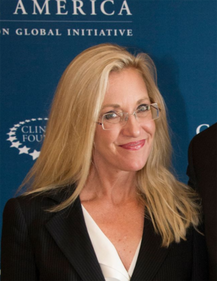 About Natalie Pace Natalie Wynne Pace is an Advocate for Sustainability, Financial Literacy & Women's Empowerment. She has been ranked as a No. 1 stock picker, above over 835 A-list pundits, by an independent tracking agency (TipsTraders). The ABCs of Money remained at or near the #1 Investing Basics e-book on Amazon for over 3 years (in its vertical), with over 120,000 downloads and a mean 5-star ranking. The 3rd edition of The ABCs of Money was released in 2020. The 4th edition, updated to include the COVID-19 Recession, will be released soon. Natalie Pace's easy as a pie chart nest egg strategies earned gains in the last two recessions and have outperformed the bull markets in between. That is why her Investor Educational Retreats, books and private coaching are enthusiastically recommended by Nobel Prize winning economist Gary S. Becker, TD AMERITRADE chairman Joe Moglia, Kay Koplovitz and many Main Street investors who have transformed their lives using her Thrive Budget and investing strategies. Click to view a video testimonial from Nilo Bolden. |
AuthorNatalie Pace is the co-creator of the Earth Gratitude Project and the author of The Power of 8 Billion: It's Up to Us, The ABCs of Money, The ABCs of Money for College, The Gratitude Game and Put Your Money Where Your Heart Is. She is a repeat guest & speaker on national news shows and stages. She has been ranked the No. 1 stock picker, above over 830 A-list pundits, by an independent tracking agency, and has been saving homes and nest eggs since 1999. Archives
July 2024
Categories |






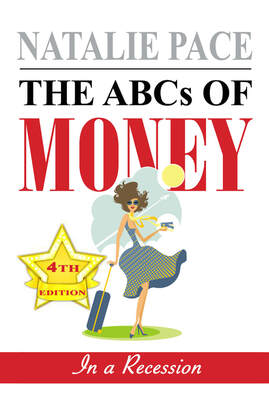
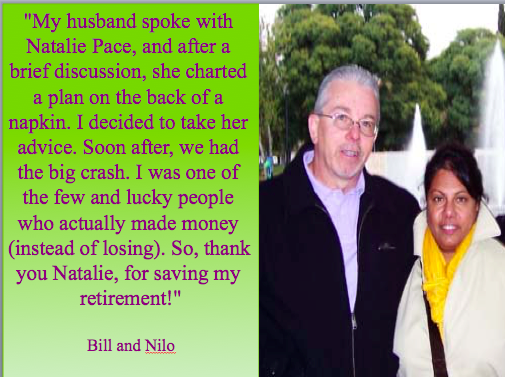


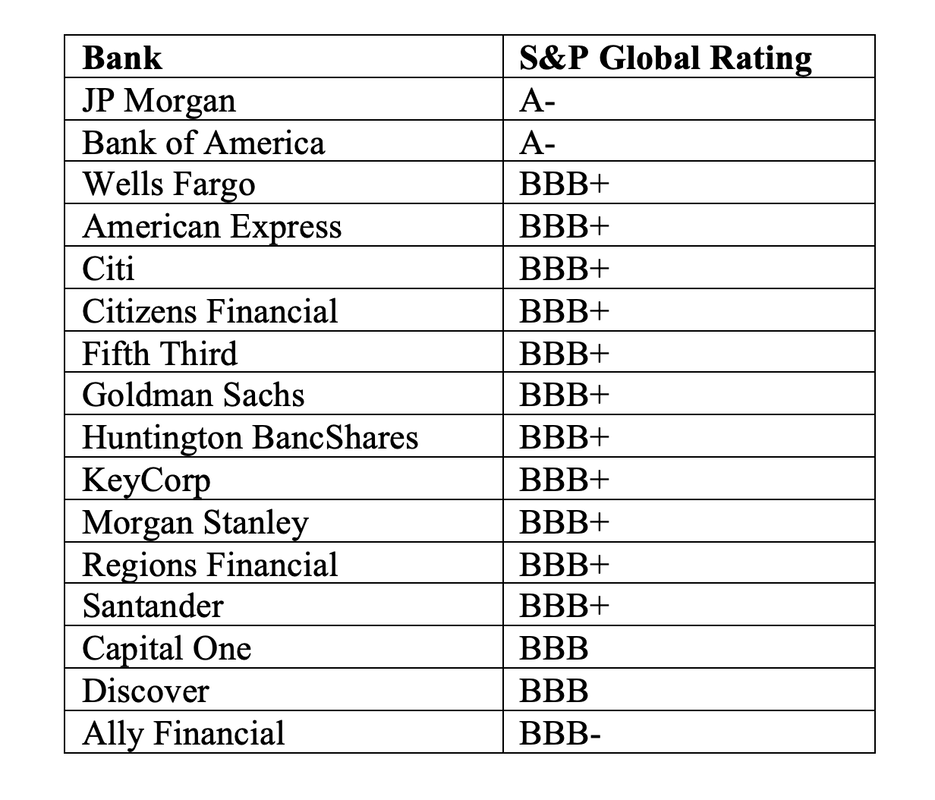
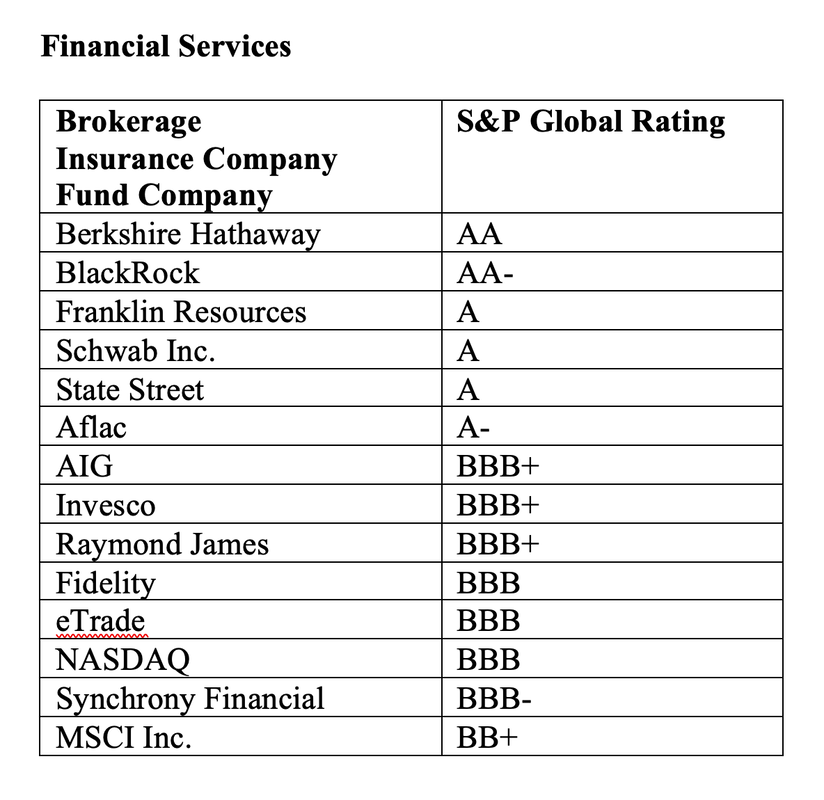
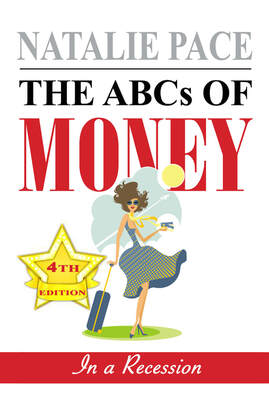
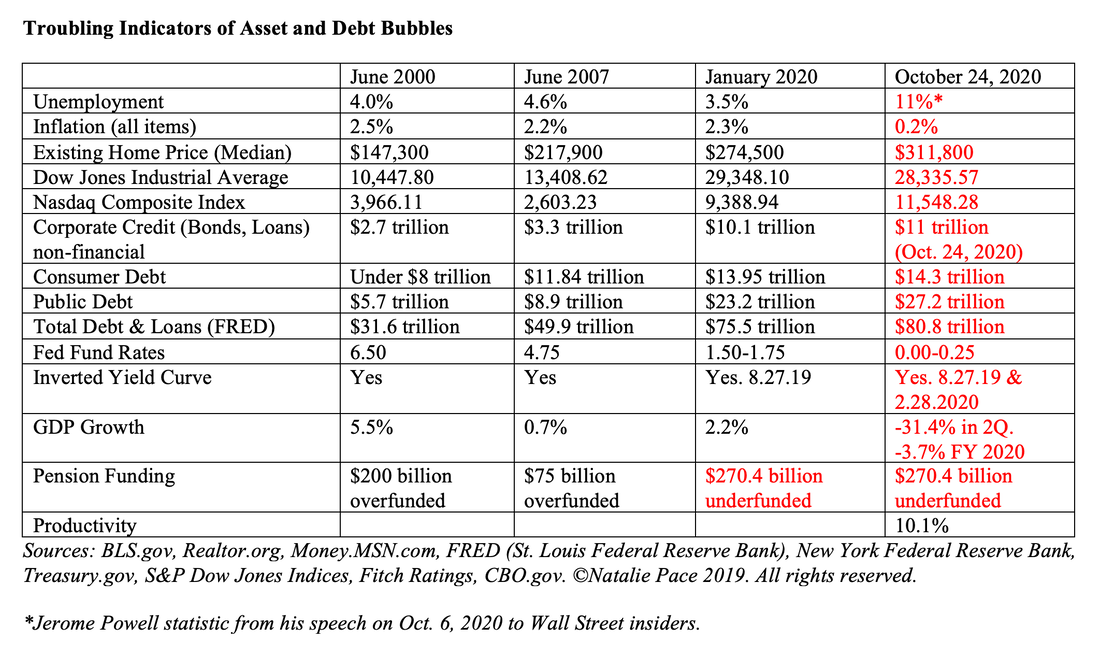



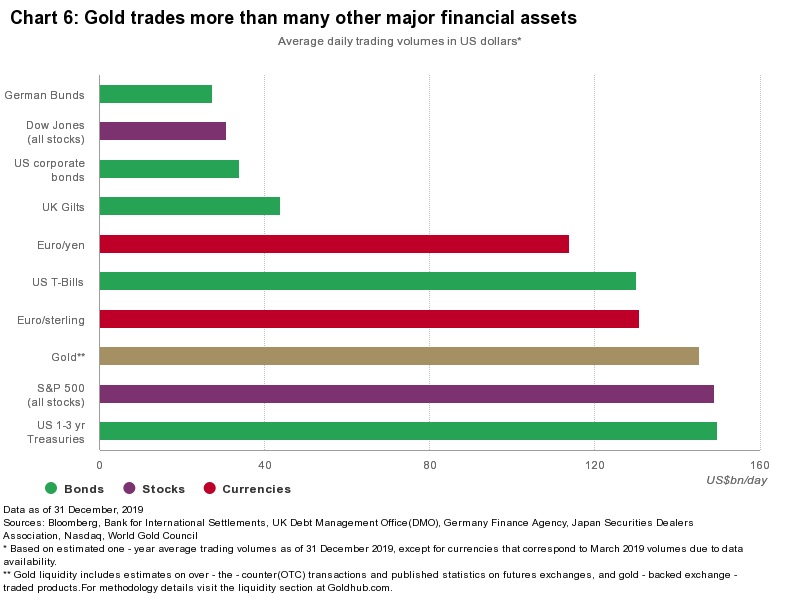
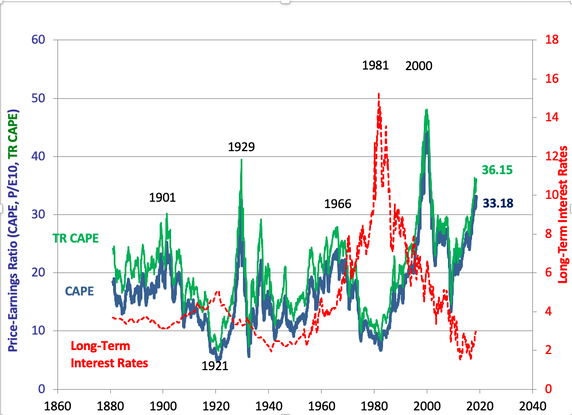
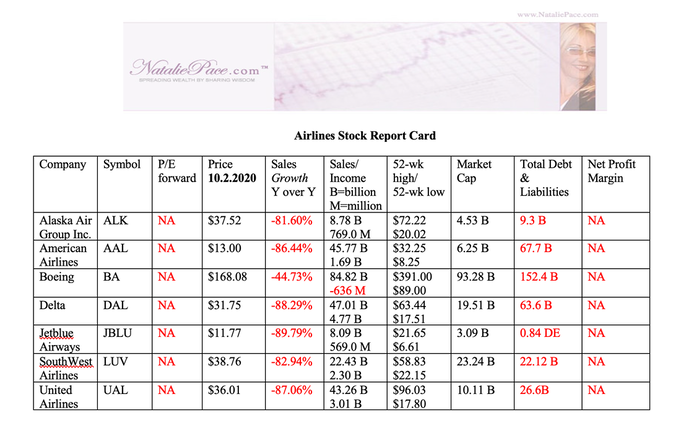
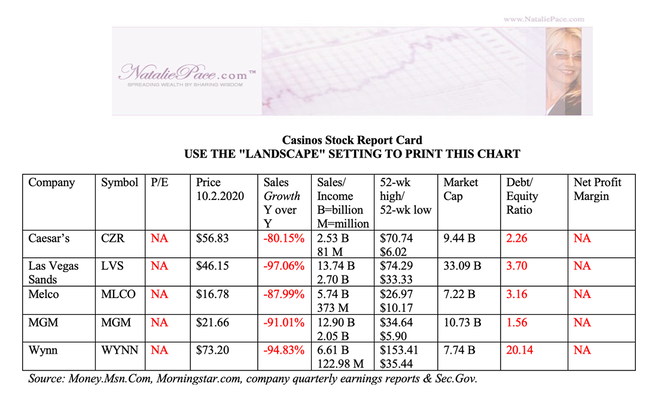
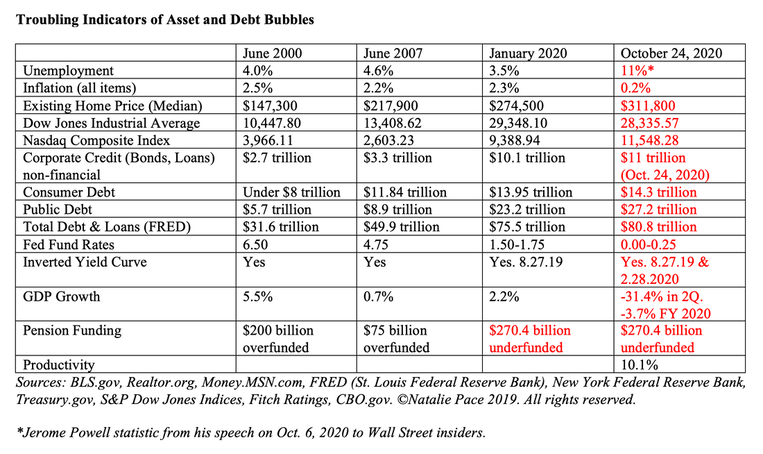
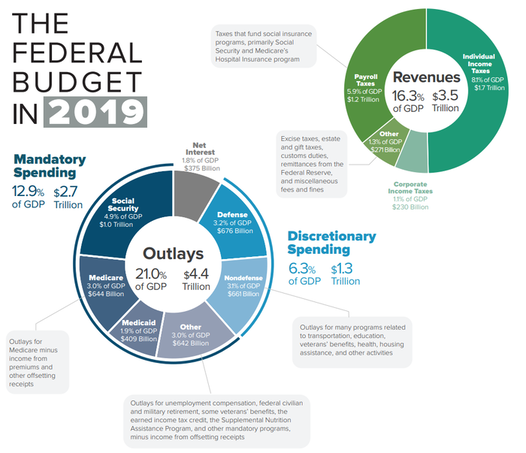




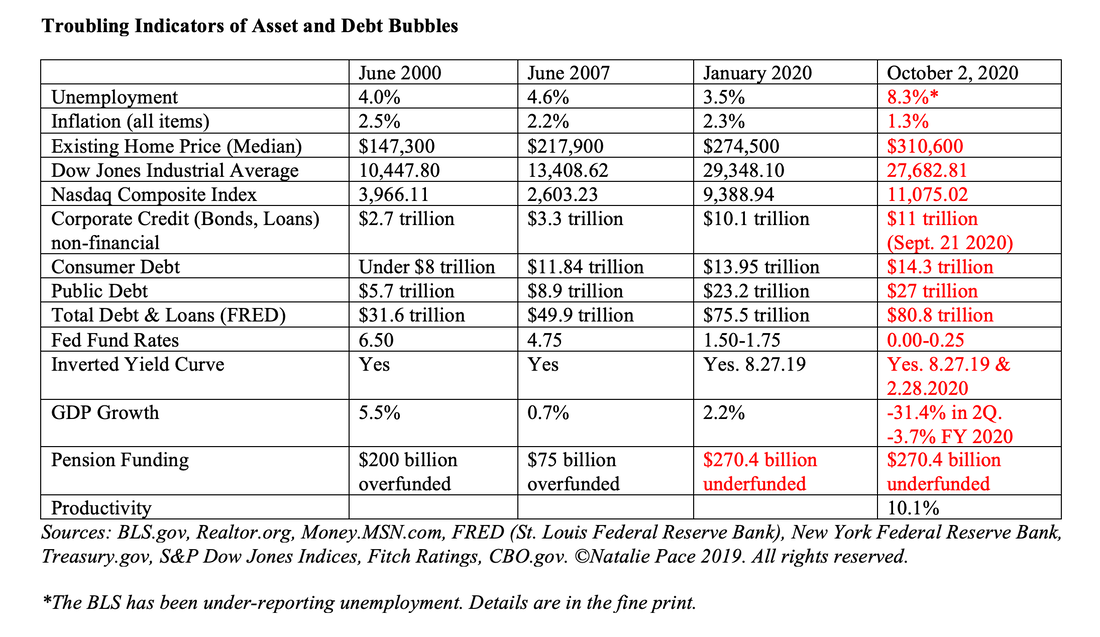
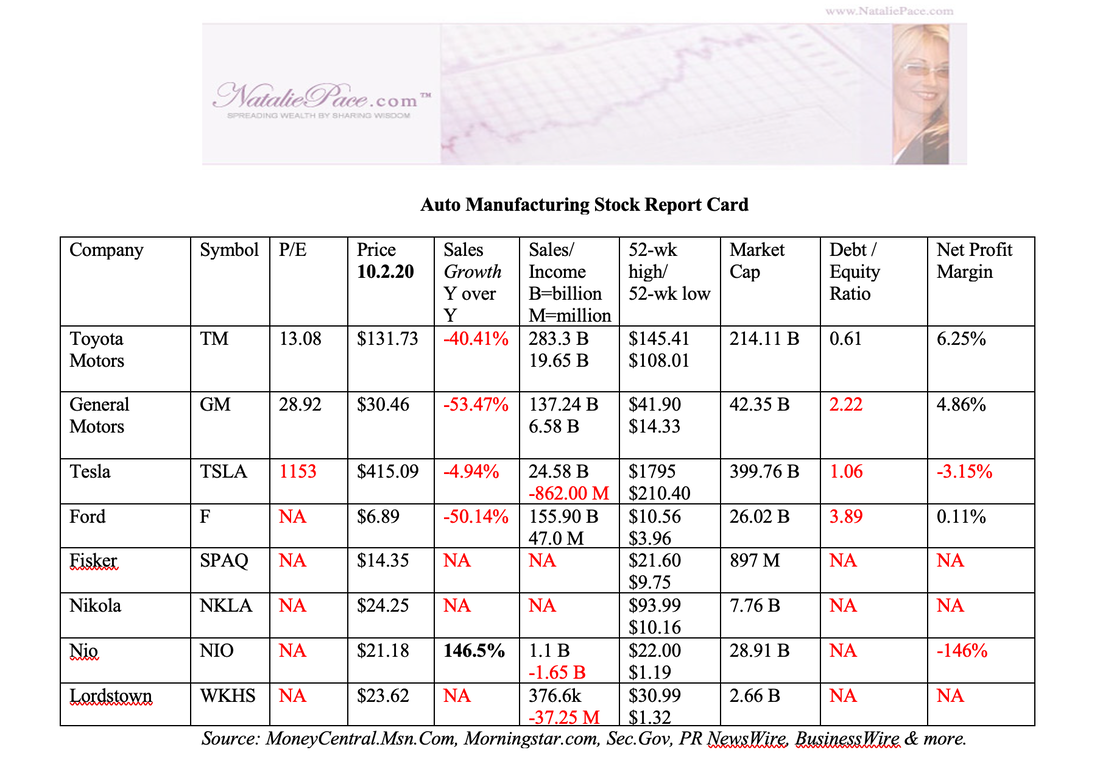


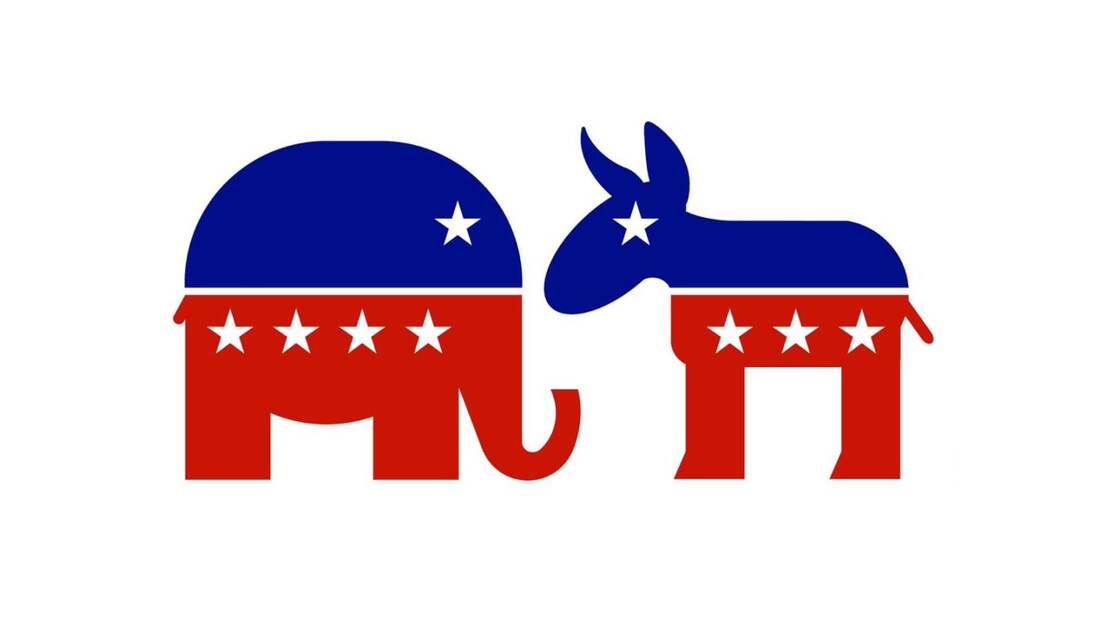
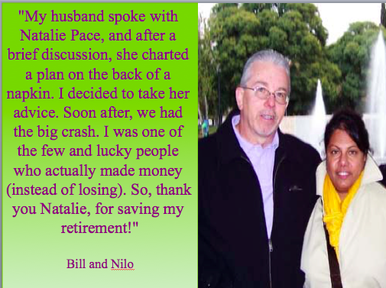
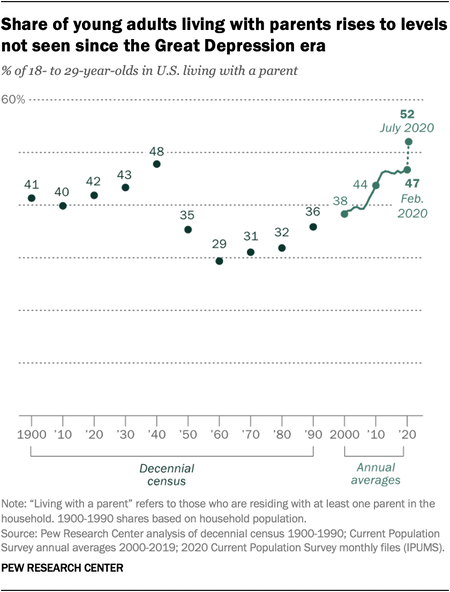
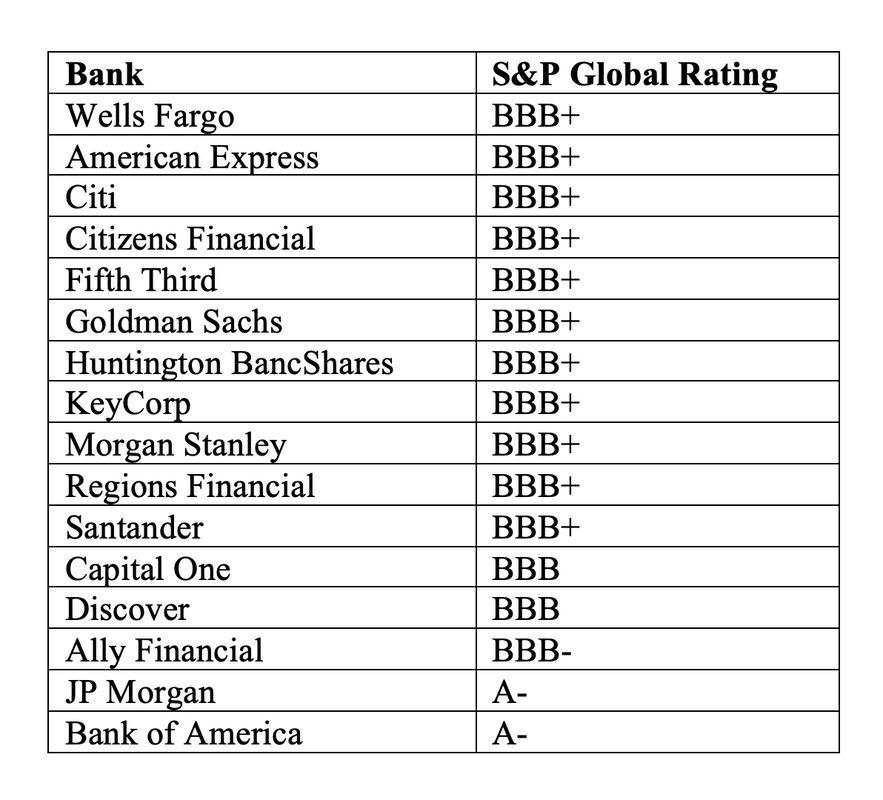
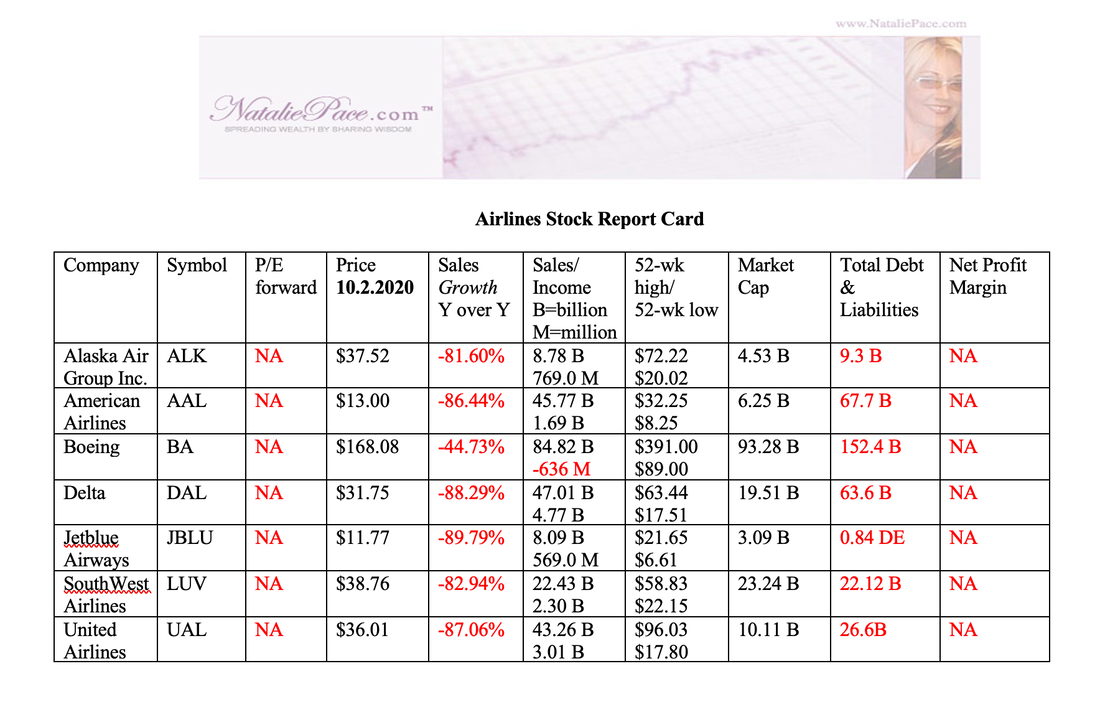
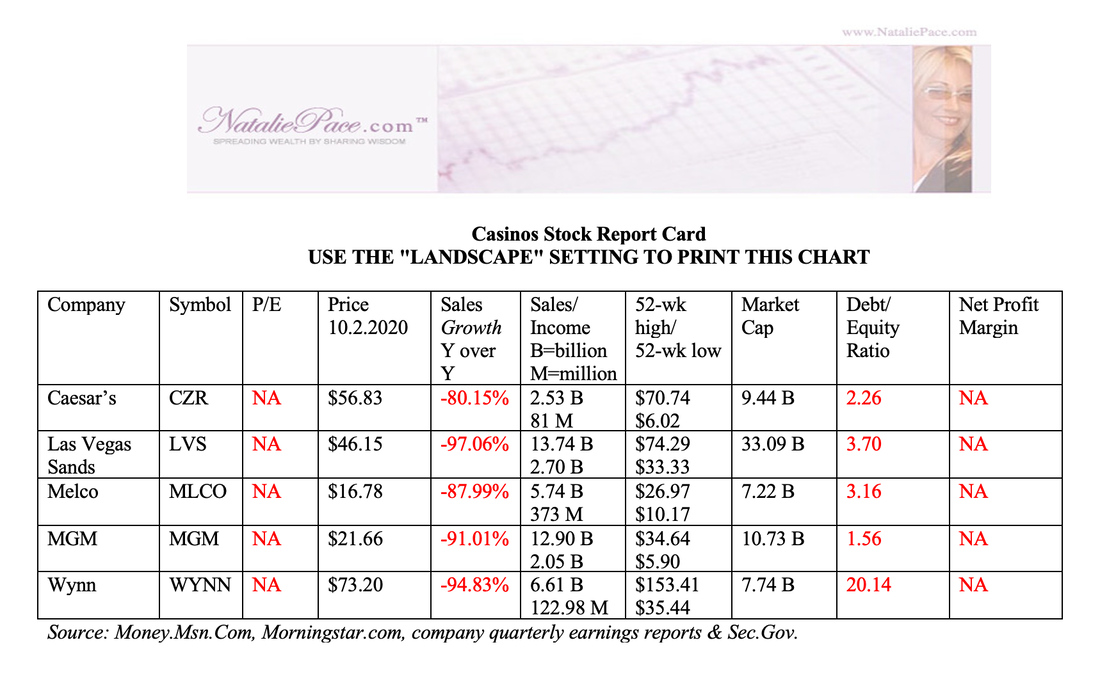

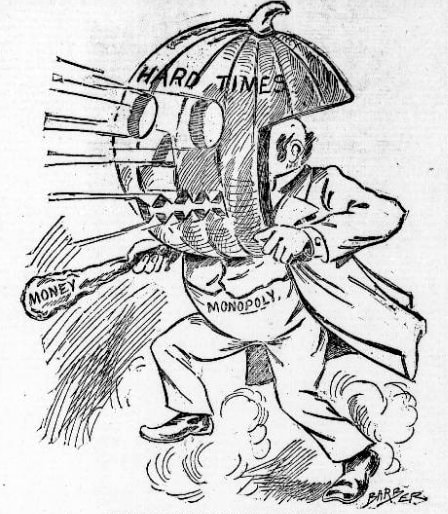
 RSS Feed
RSS Feed